This website uses cookies so that we can provide you with the best user experience possible. Cookie information is stored in your browser and performs functions such as recognising you when you return to our website and helping our team to understand which sections of the website you find most interesting and useful.
microbial futures lab
research project and multidisciplinary artwork
Various locations, 2023-
microbial futures lab
research project and multidisciplinary artwork
Various locations, 2023-
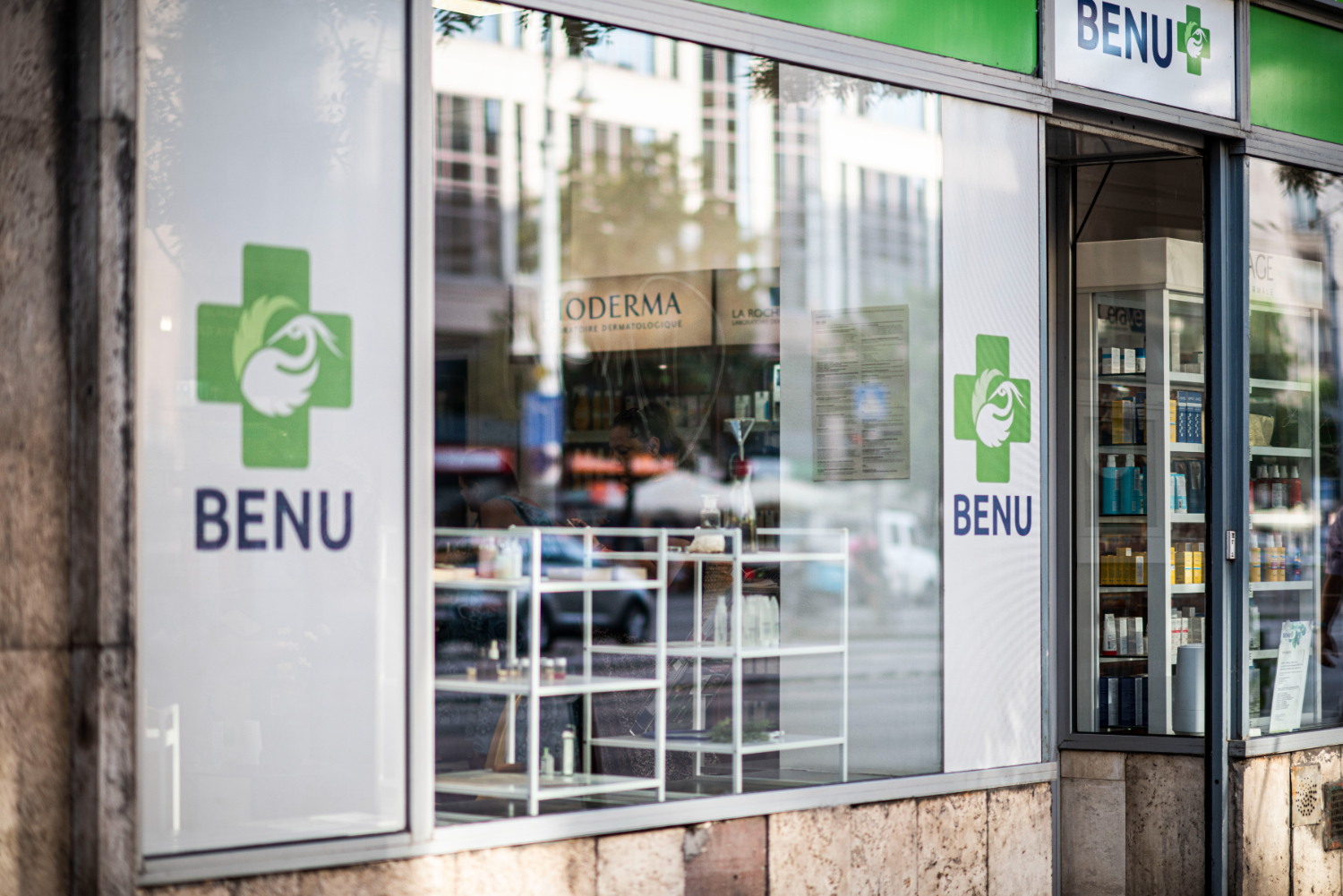
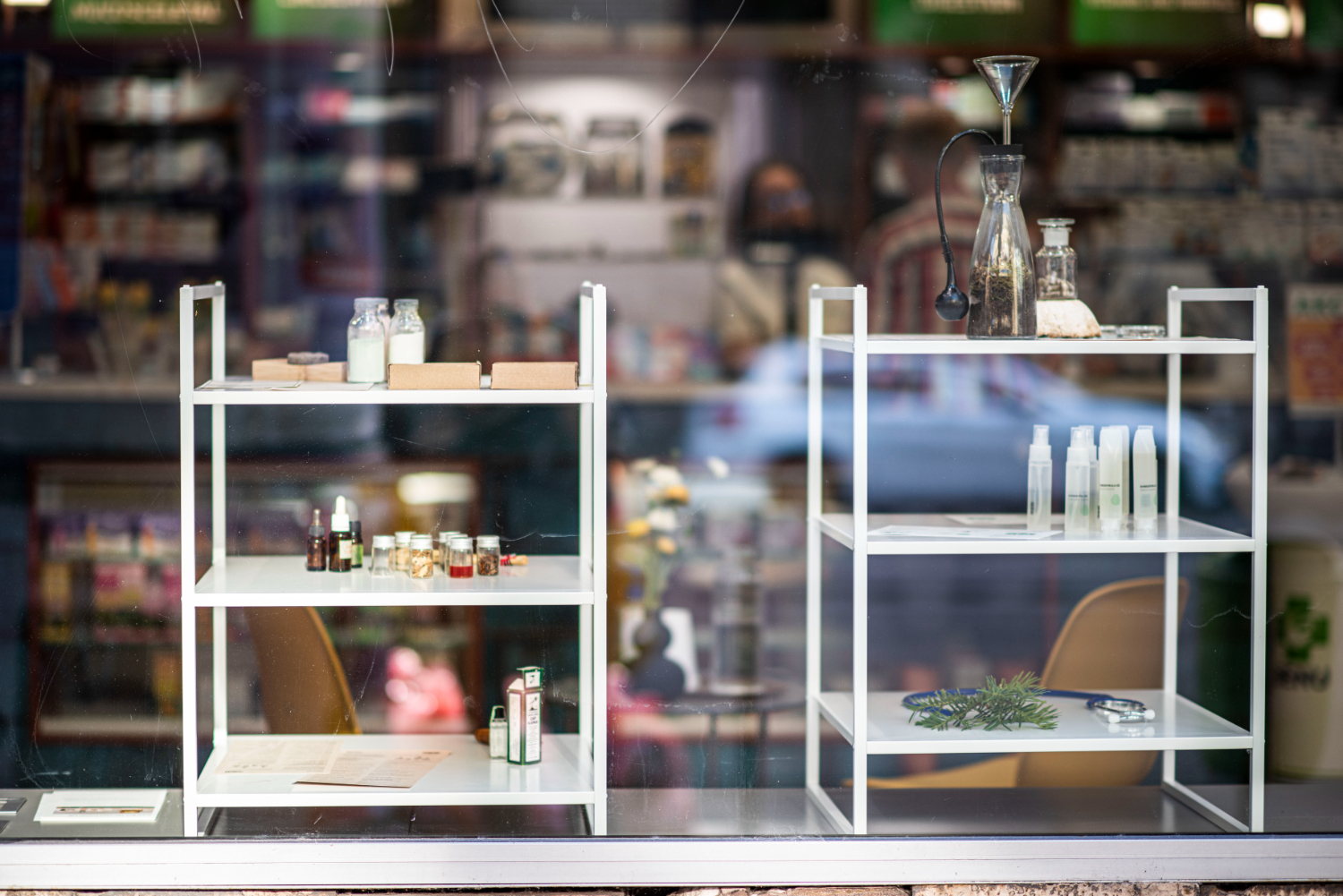
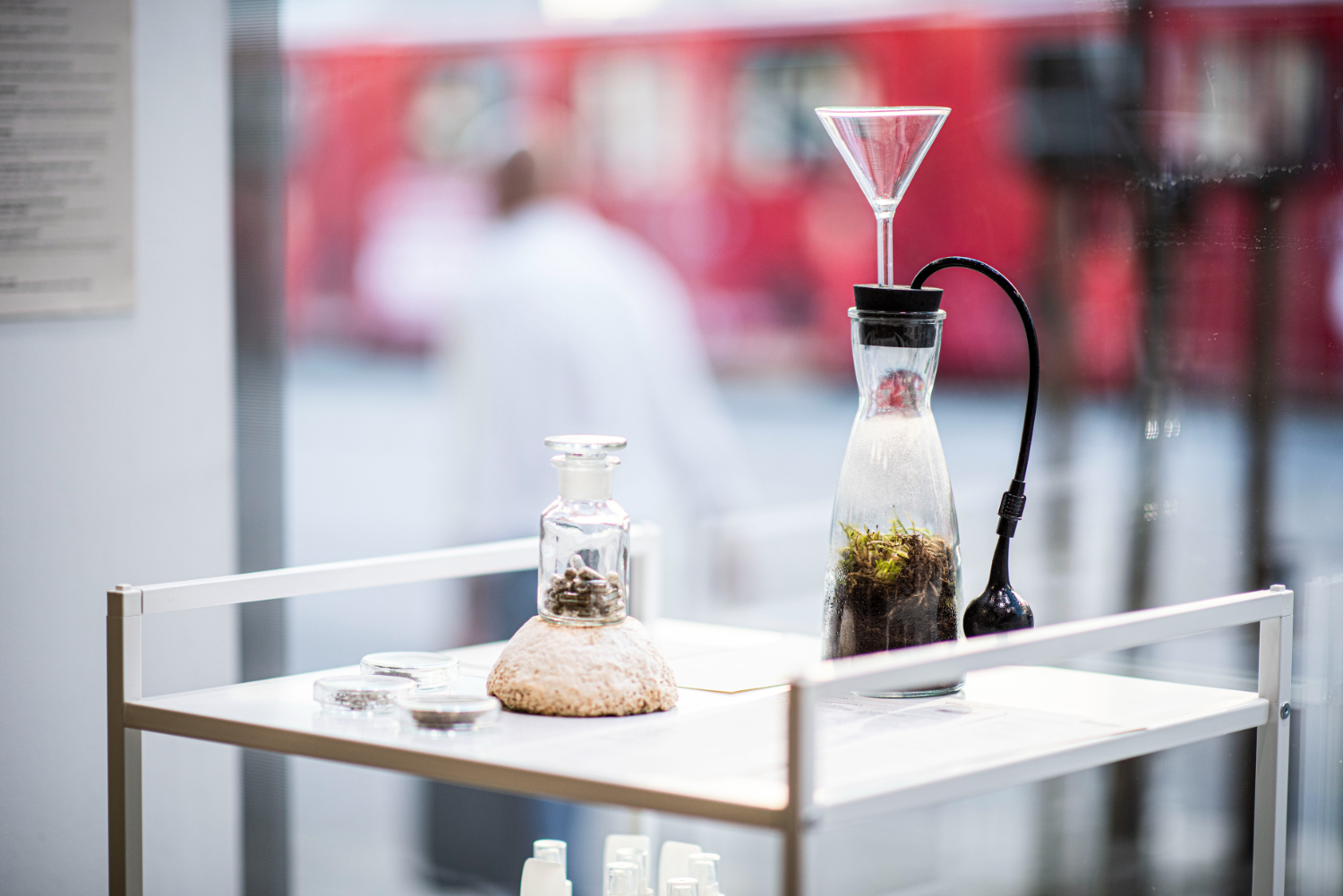
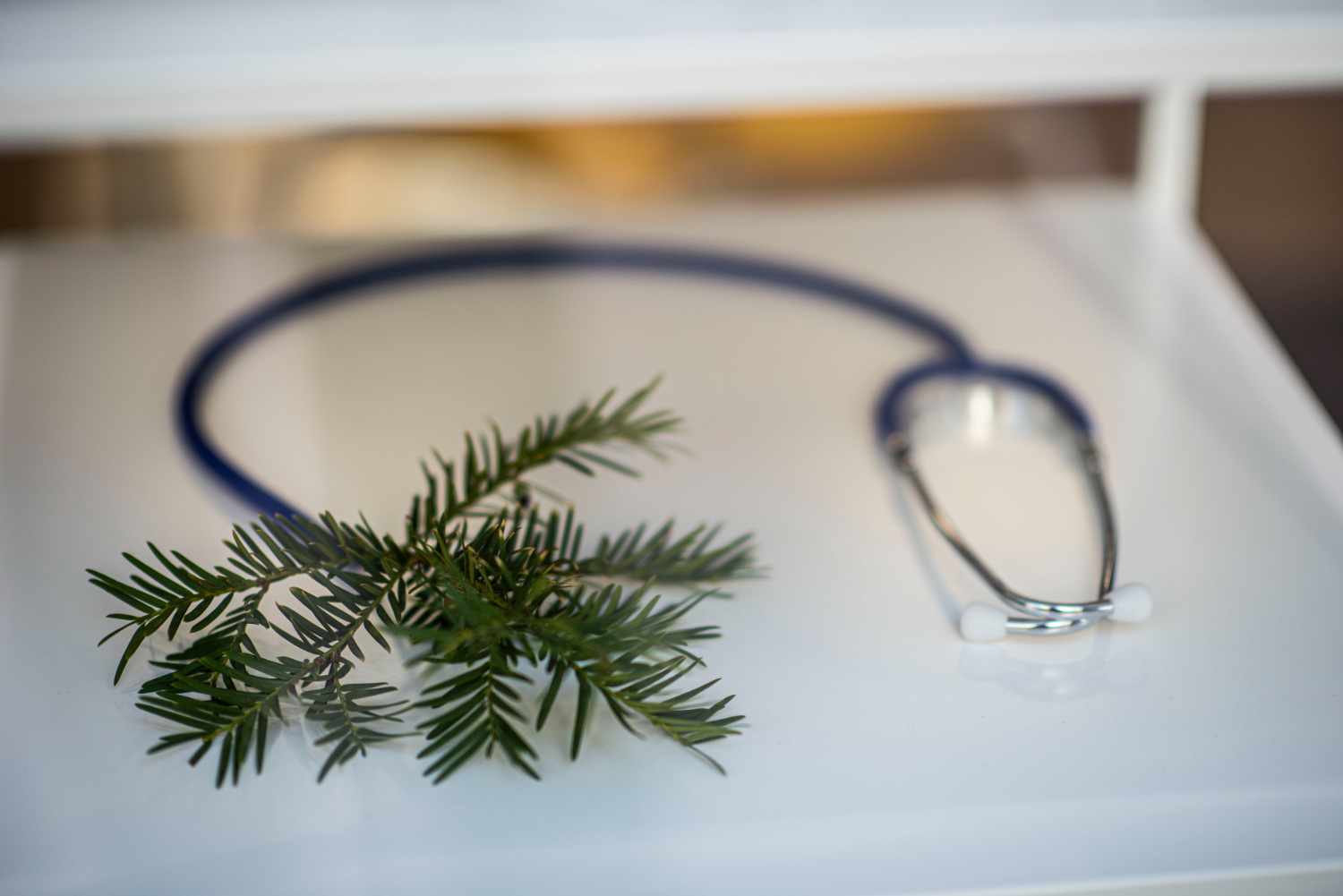
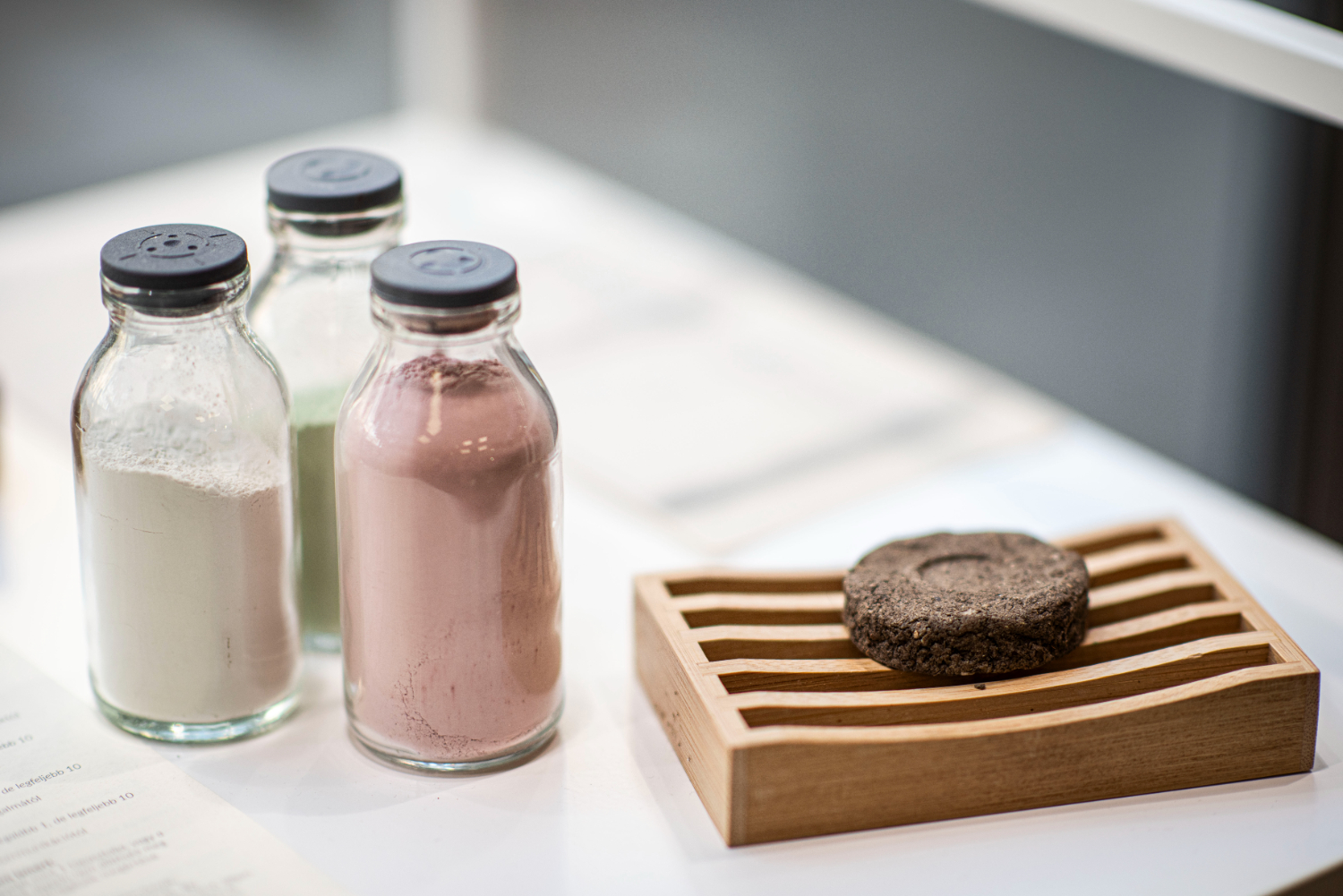
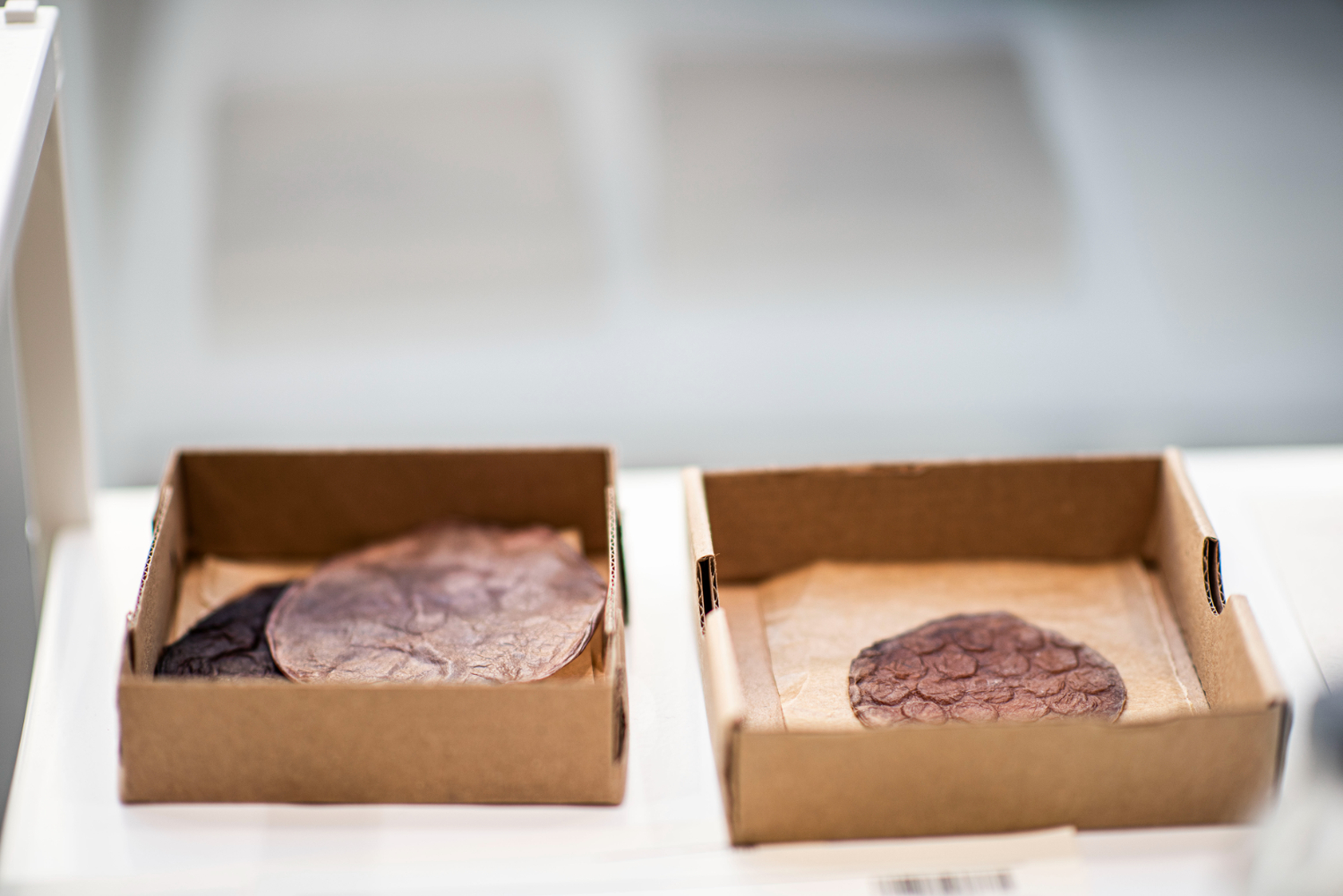
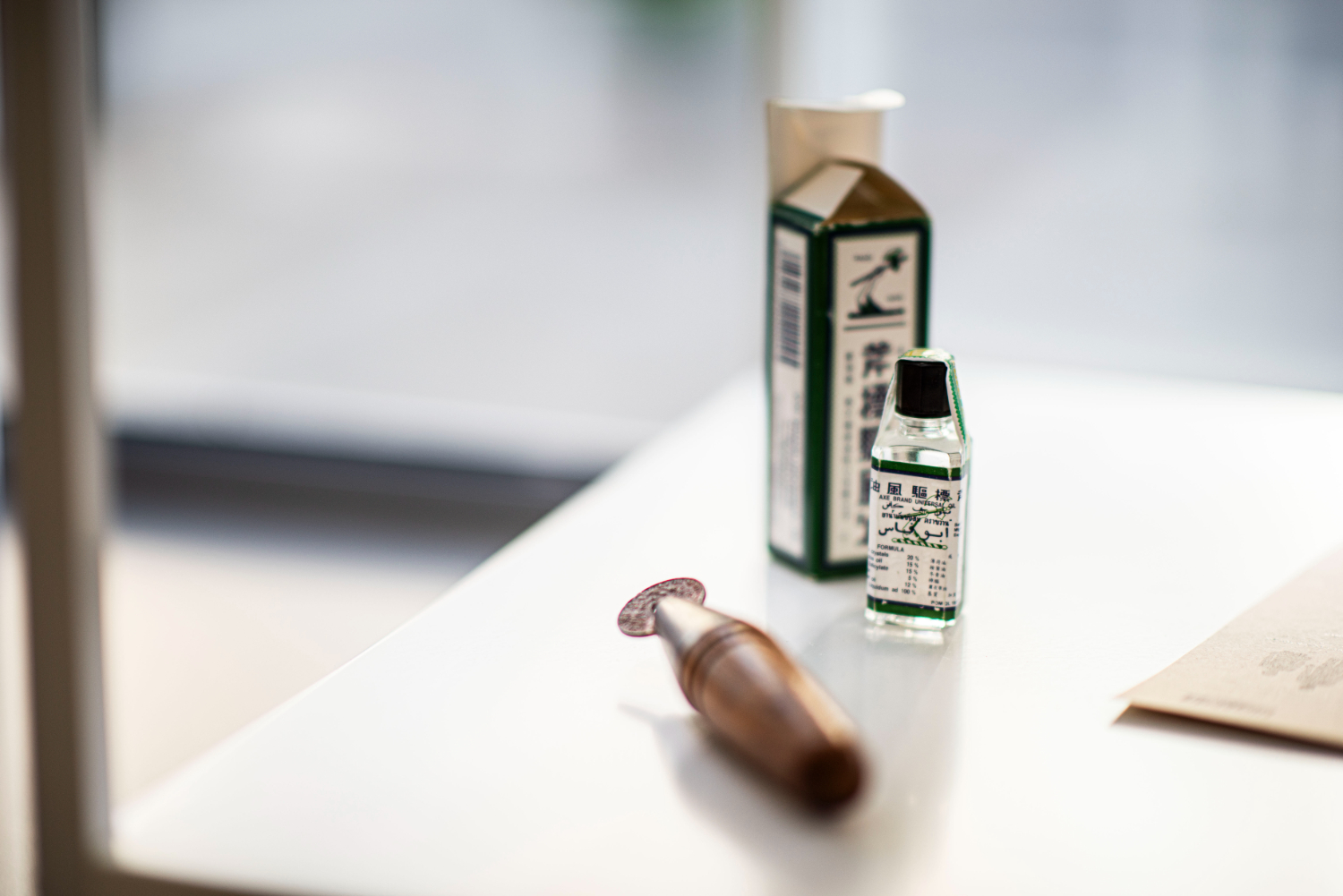
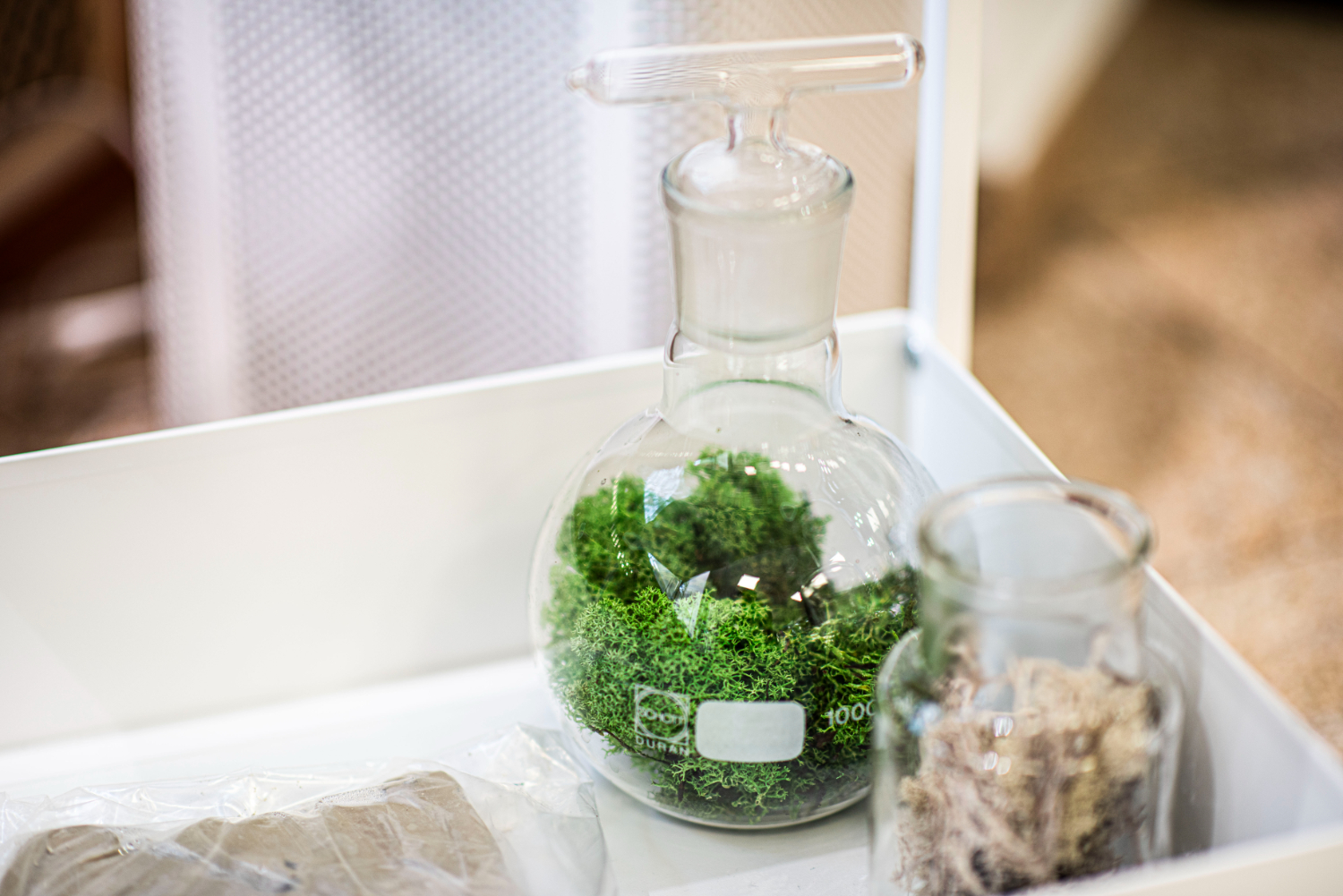
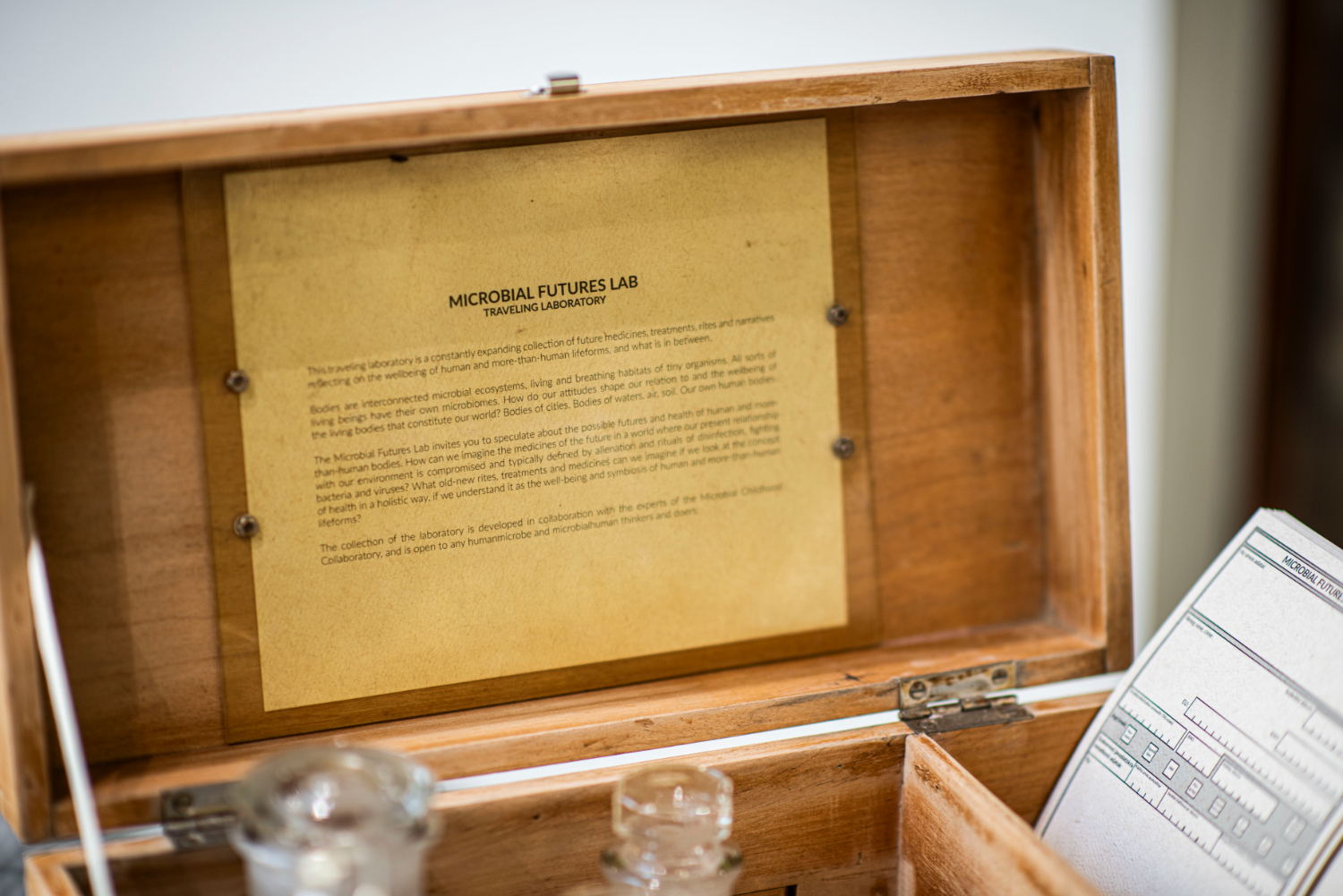
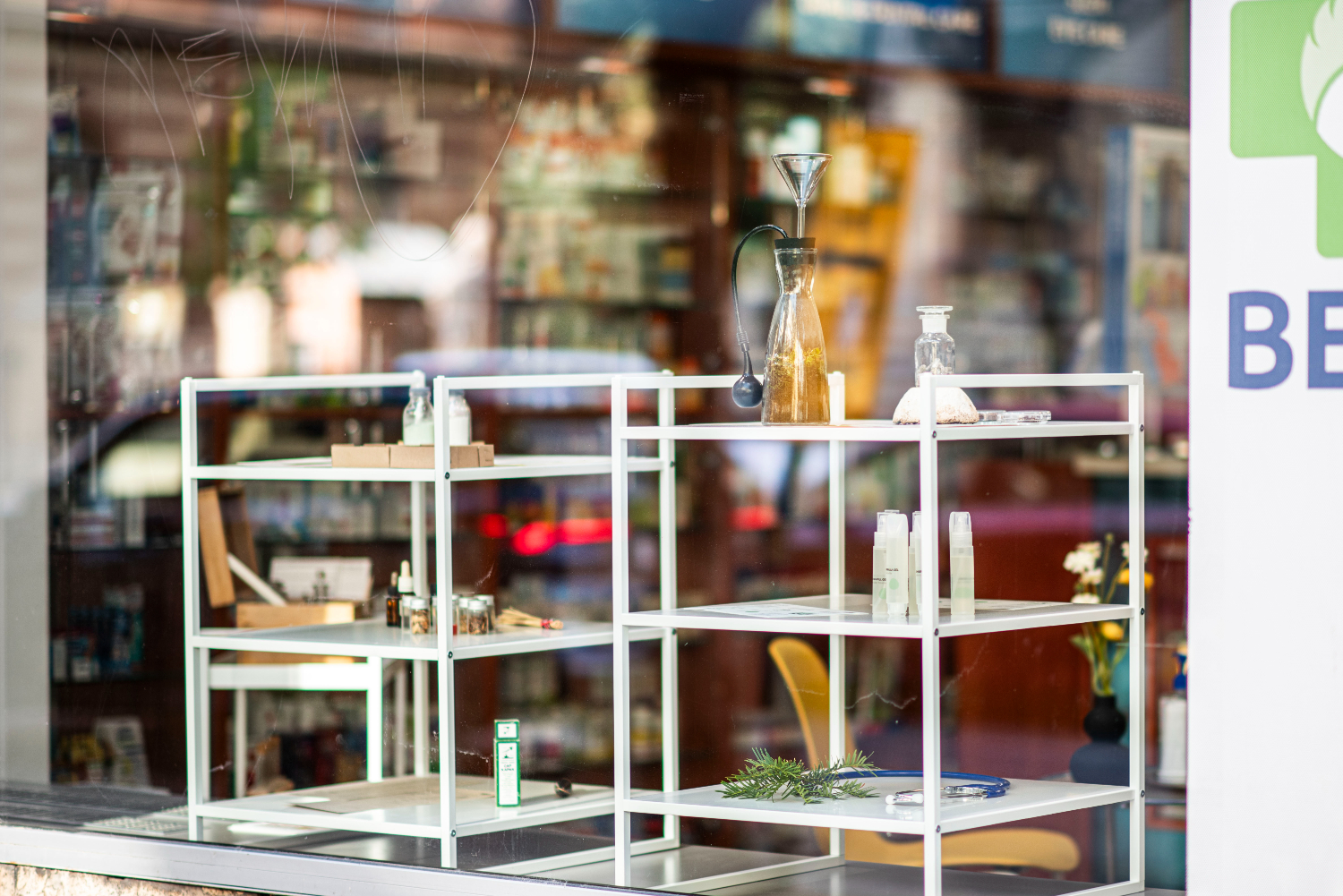
Microbial Futures Lab in BENU Pharmacy Budapest Astoria, 2024, PLACCC Festival
Photo: Attila Balogh
Microbial Futures Lab is a traveling laboratory, a constantly expanding collection of future medicines, treatments, rites and narratives reflecting on the well-being of human and more-than-human lifeforms.
The project is rooted in the collaboration with the researchers of the Microbial Childhood Collaboratory (MCC) and inspired by a research of two of our ecologist members, Marja Roslund and Mira Grönroos, and their collegues. Working closely with urban daycares, they tested and concluded that contact with microbially rich natural materials can diversify human skin microbiota, and greening daycare yards can decrease relative abundance of potentially pathogenic bacteria in soil, positively affecting children’s skin microbiota and immune system function. The findings can lead us to conclusions not only about children’s health but also human and more-than-human health itself, shedding light on how much we depend on our environment, how much human and more-than-human lifeforms are intertwined. All bodies are interconnected microbial ecosystems, living and breathing habitats of tiny organisms: bodies of cities, bodies of waters, air, soil, and our own human bodies are inseperable.
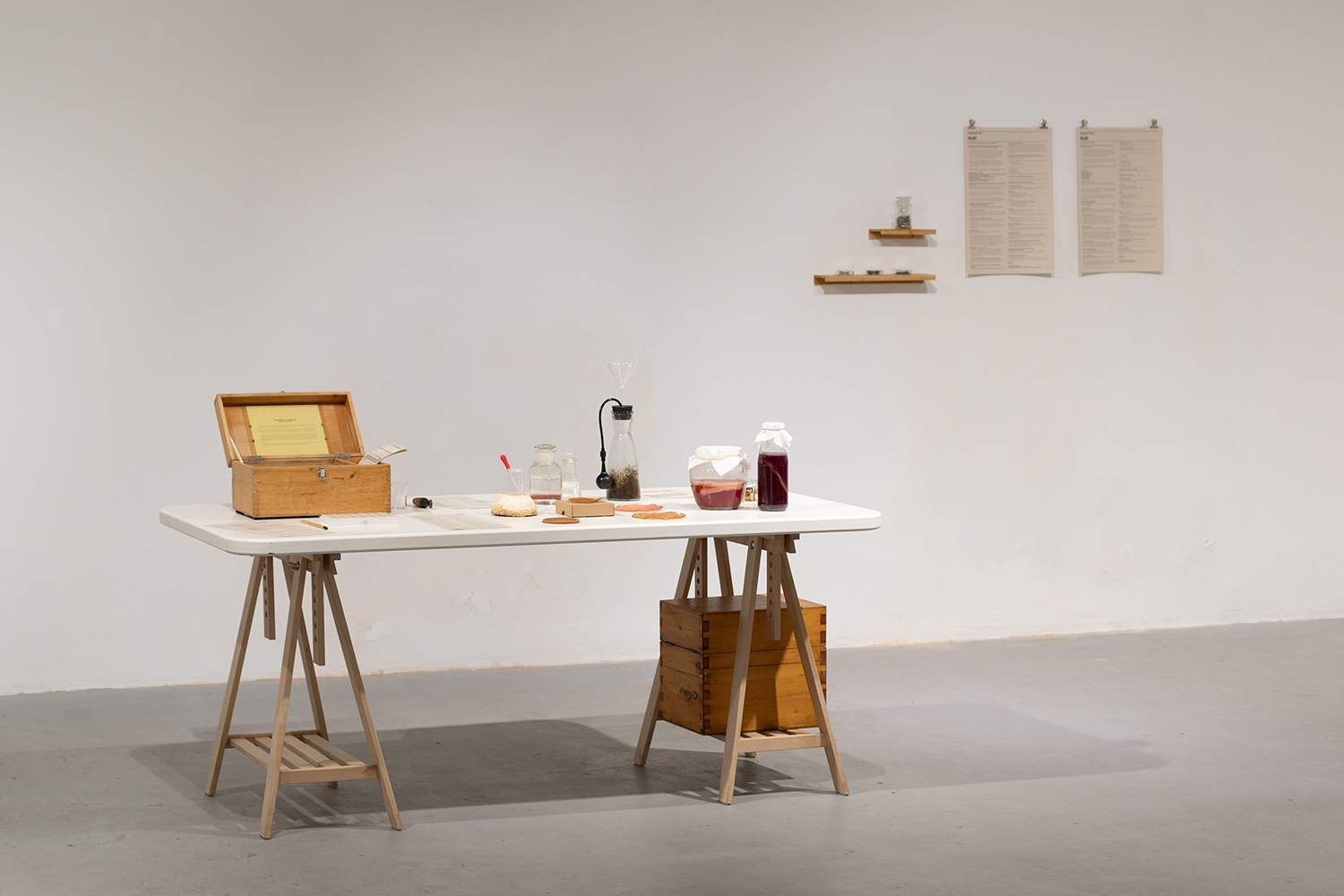
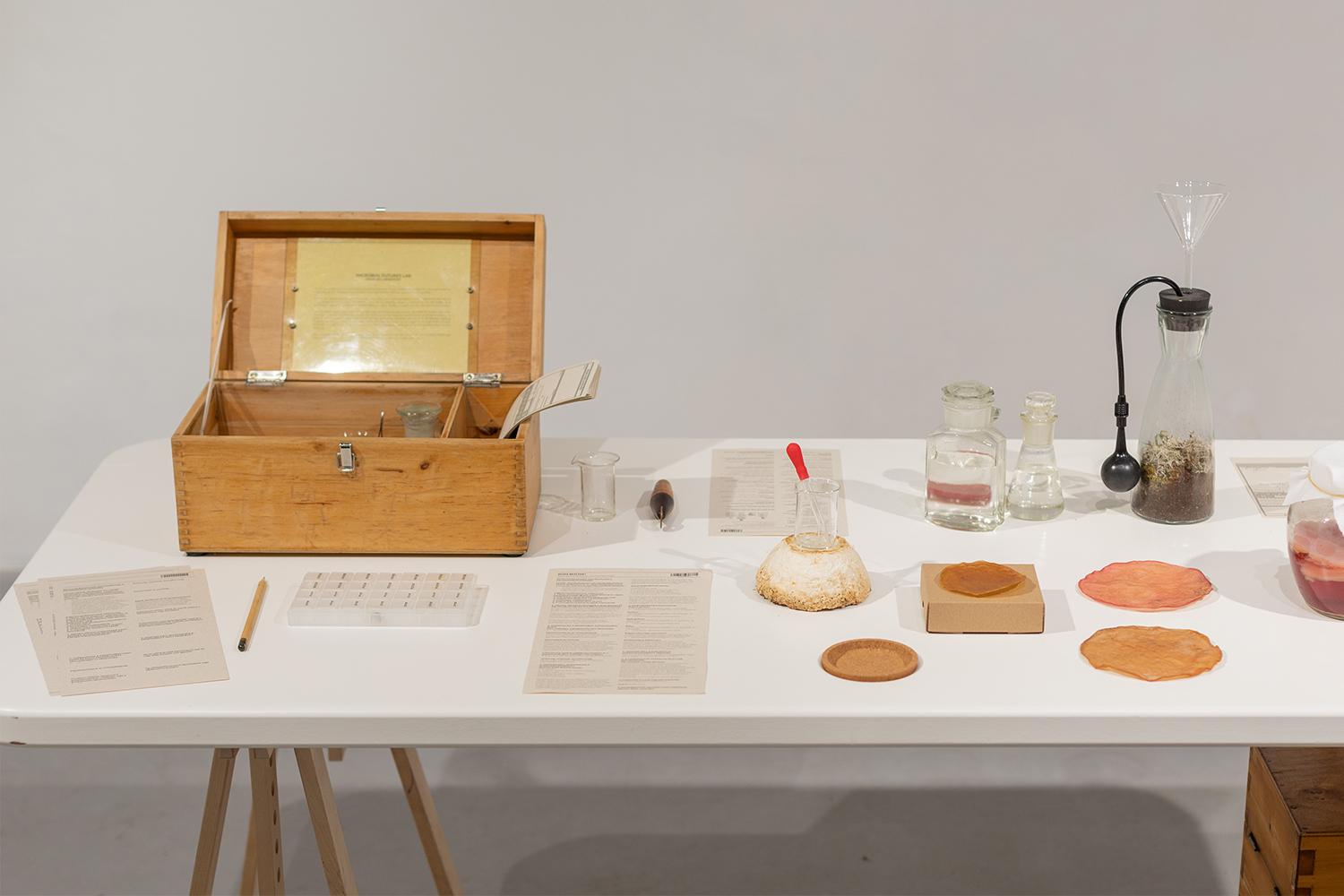
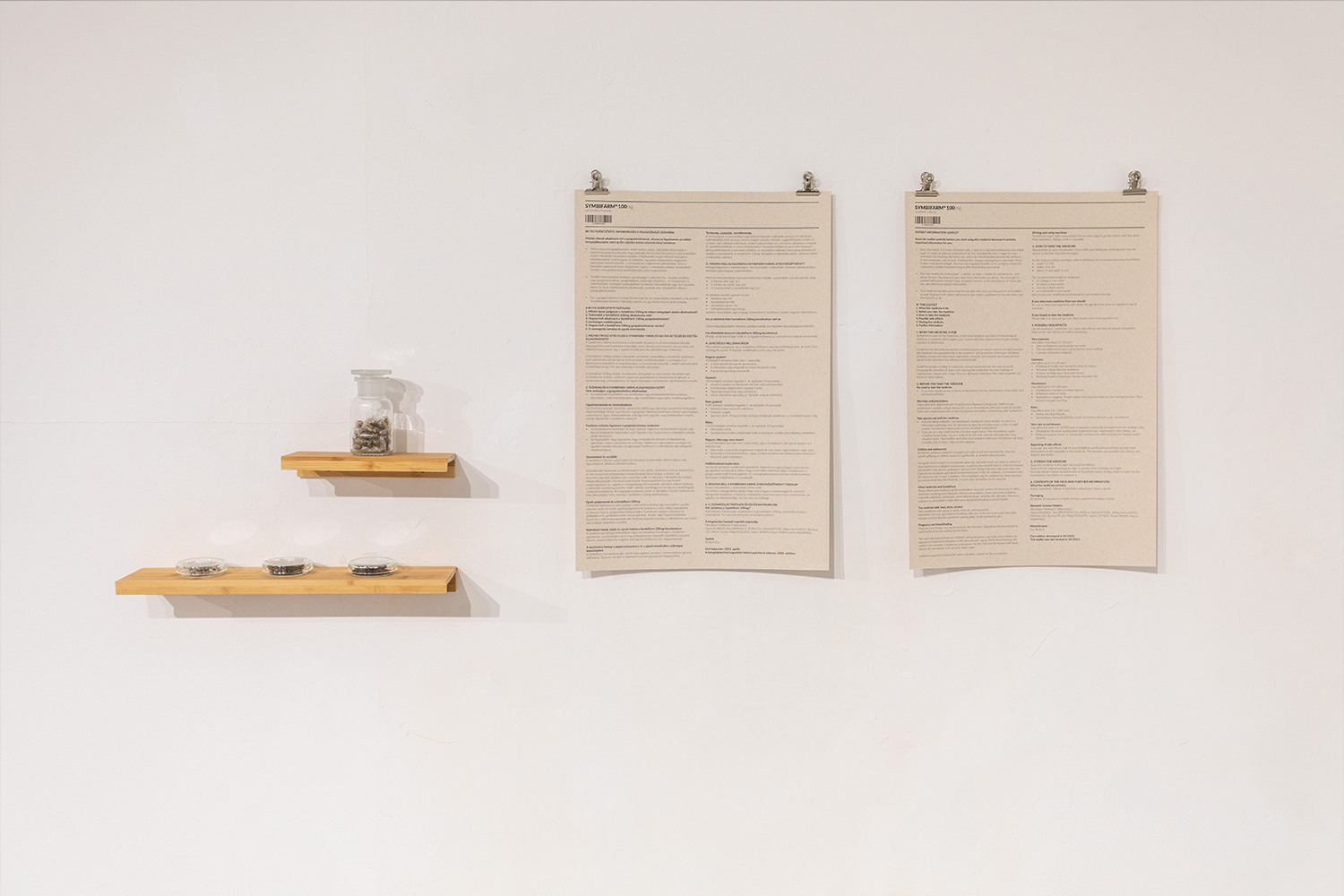
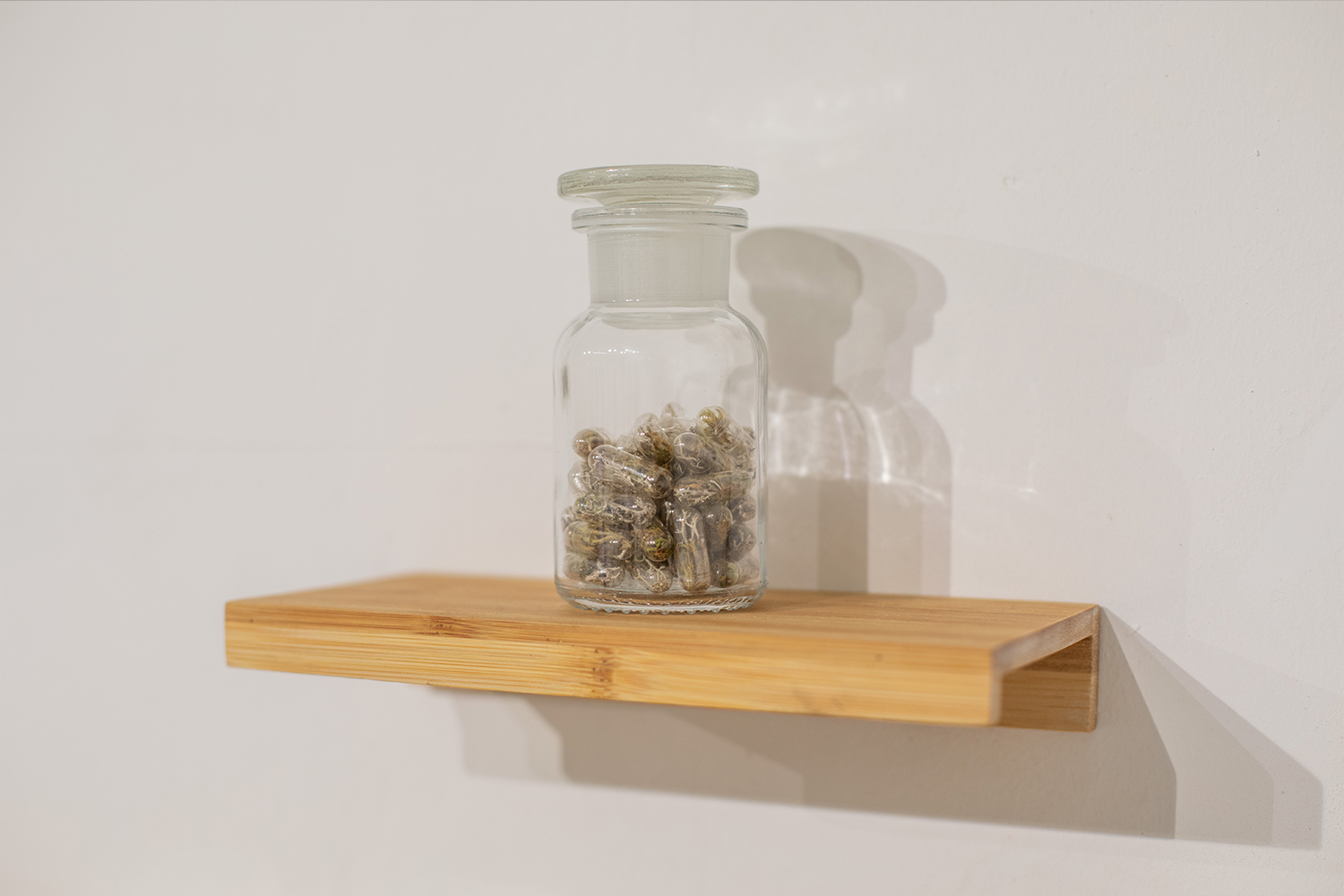
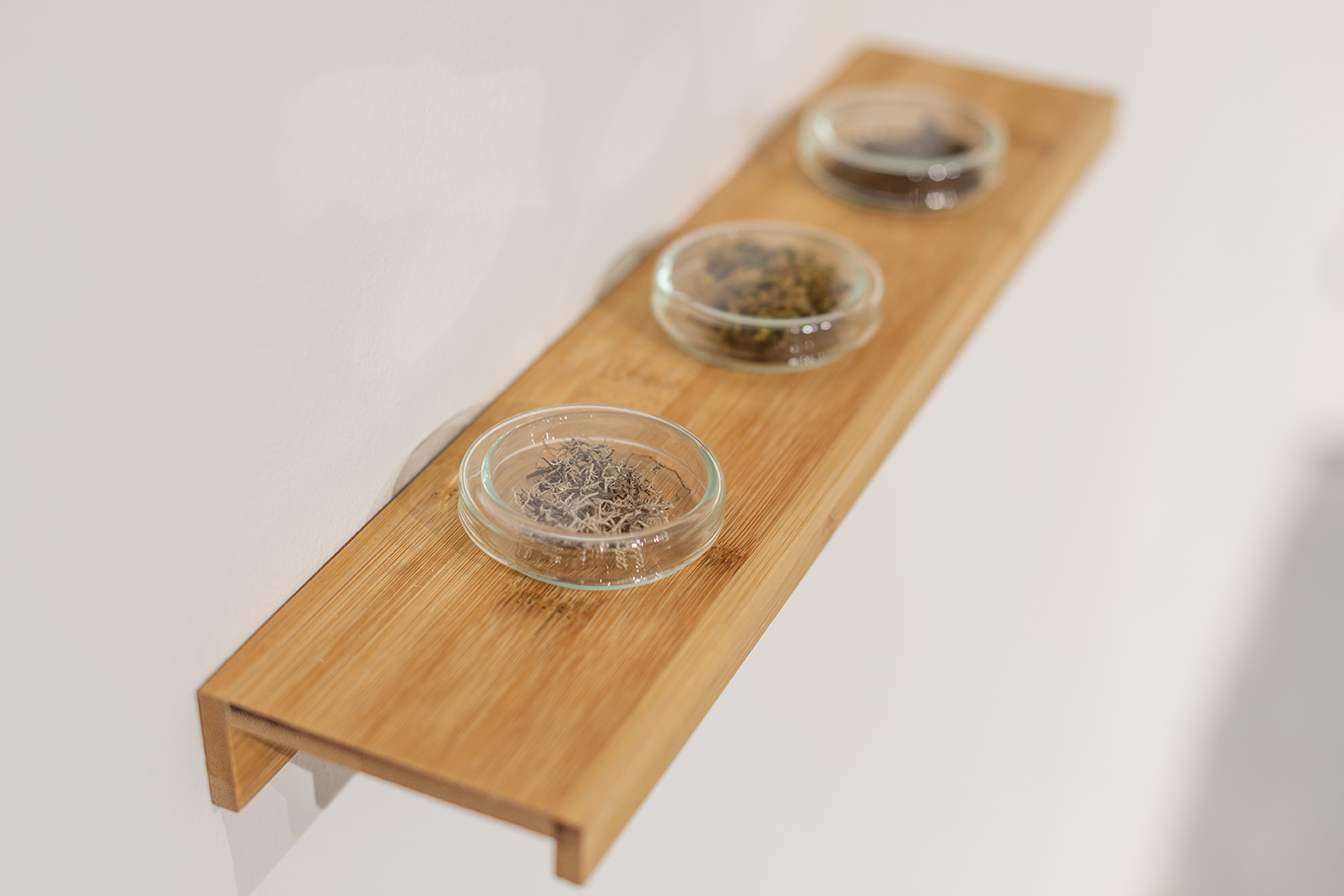
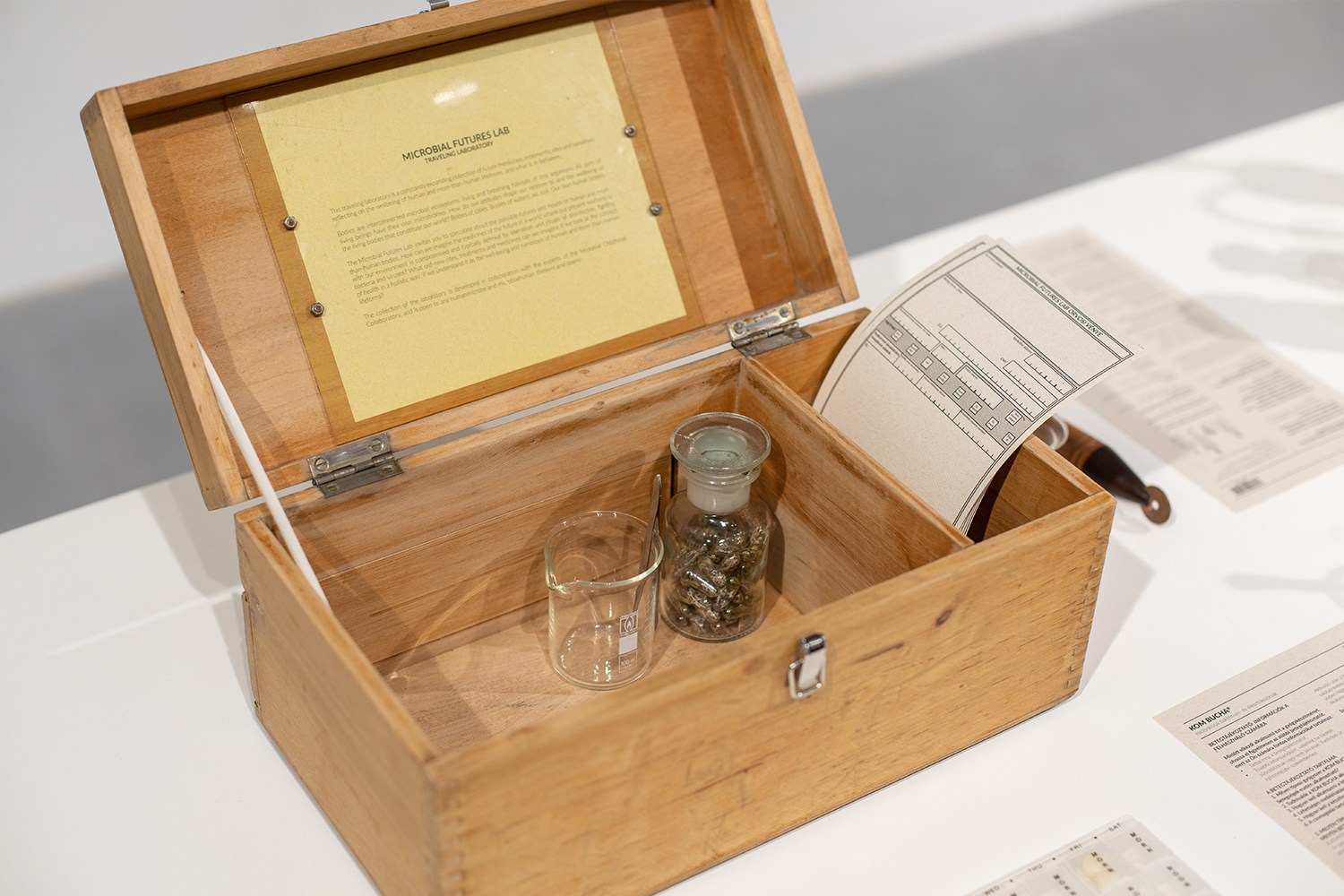
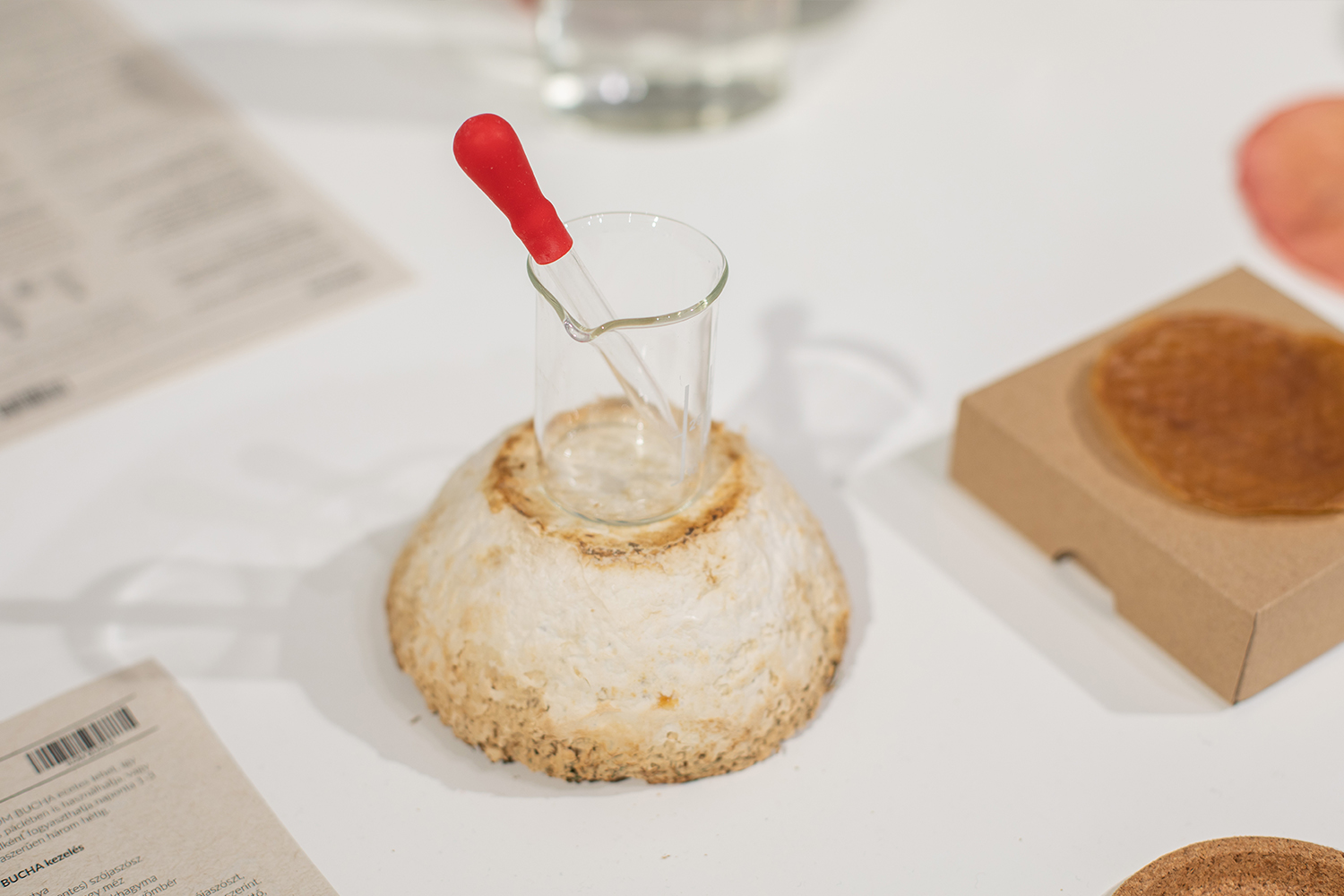
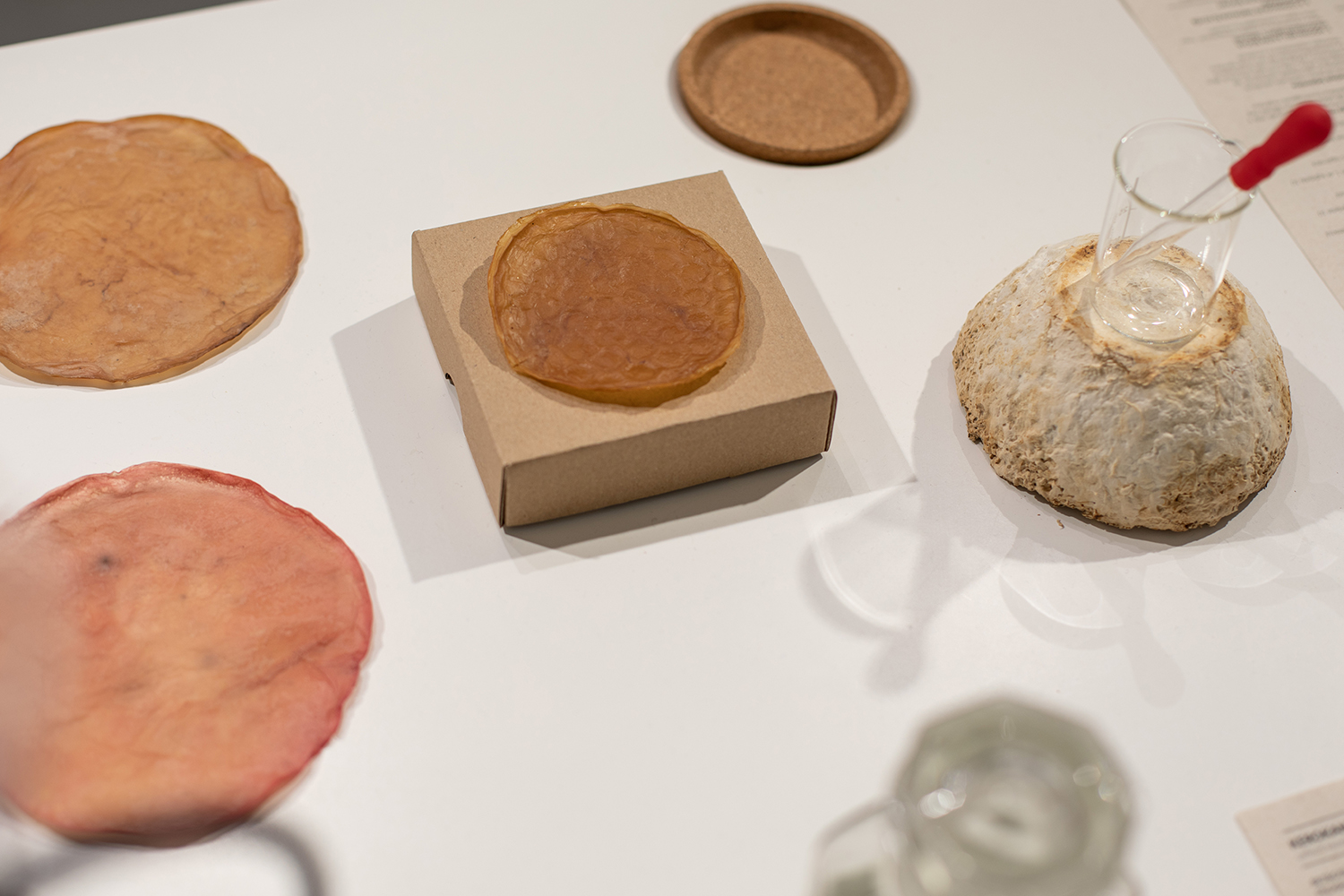
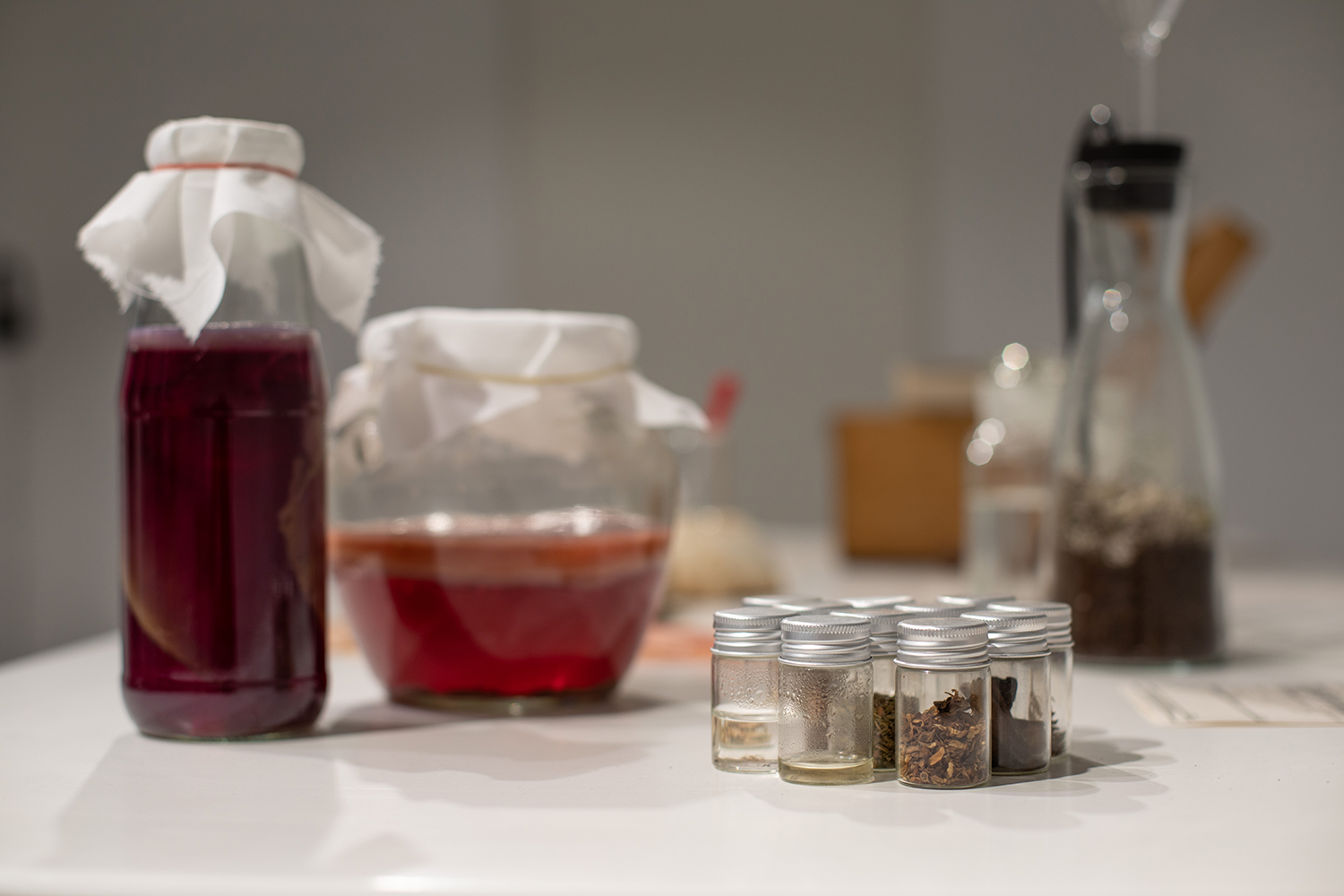
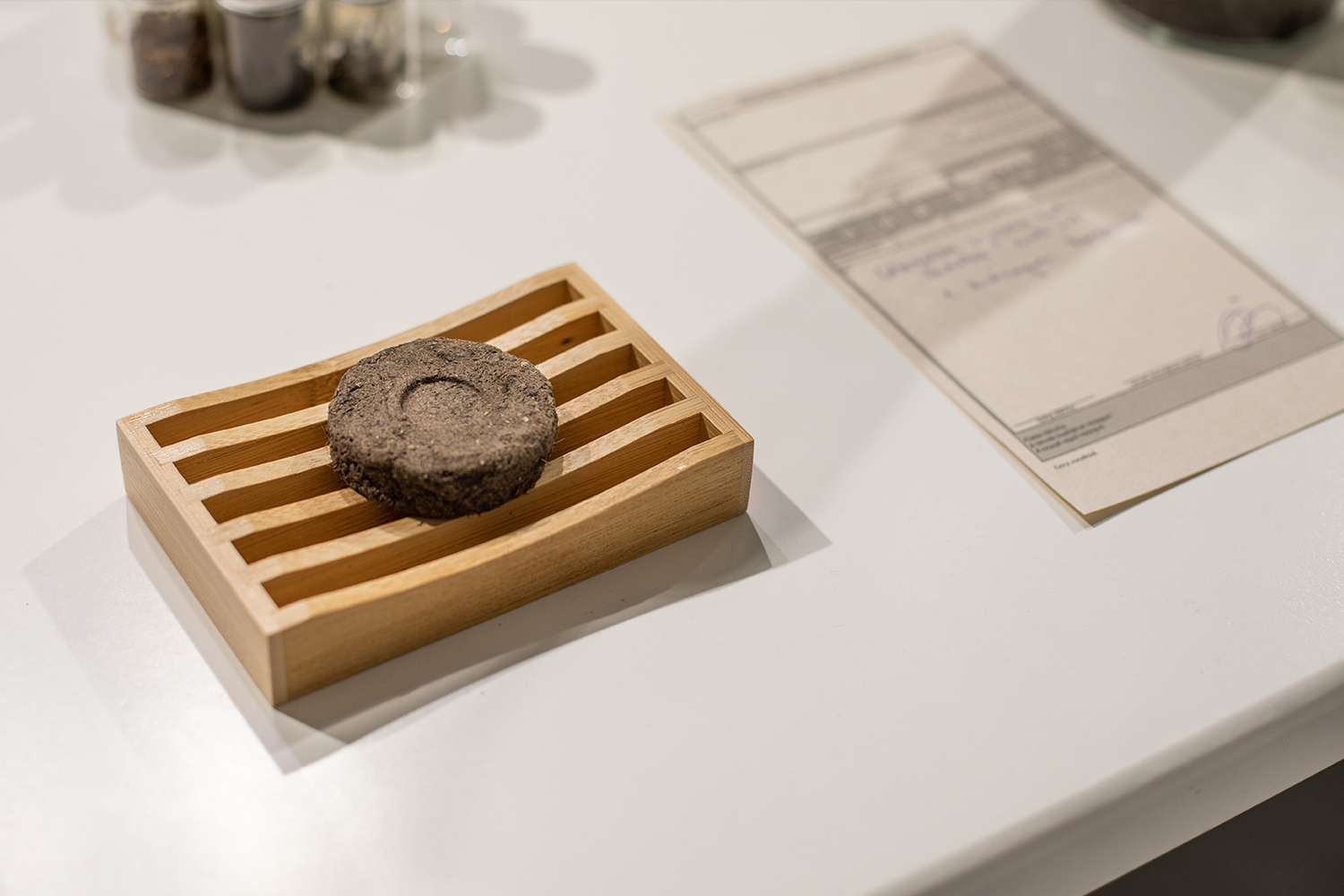
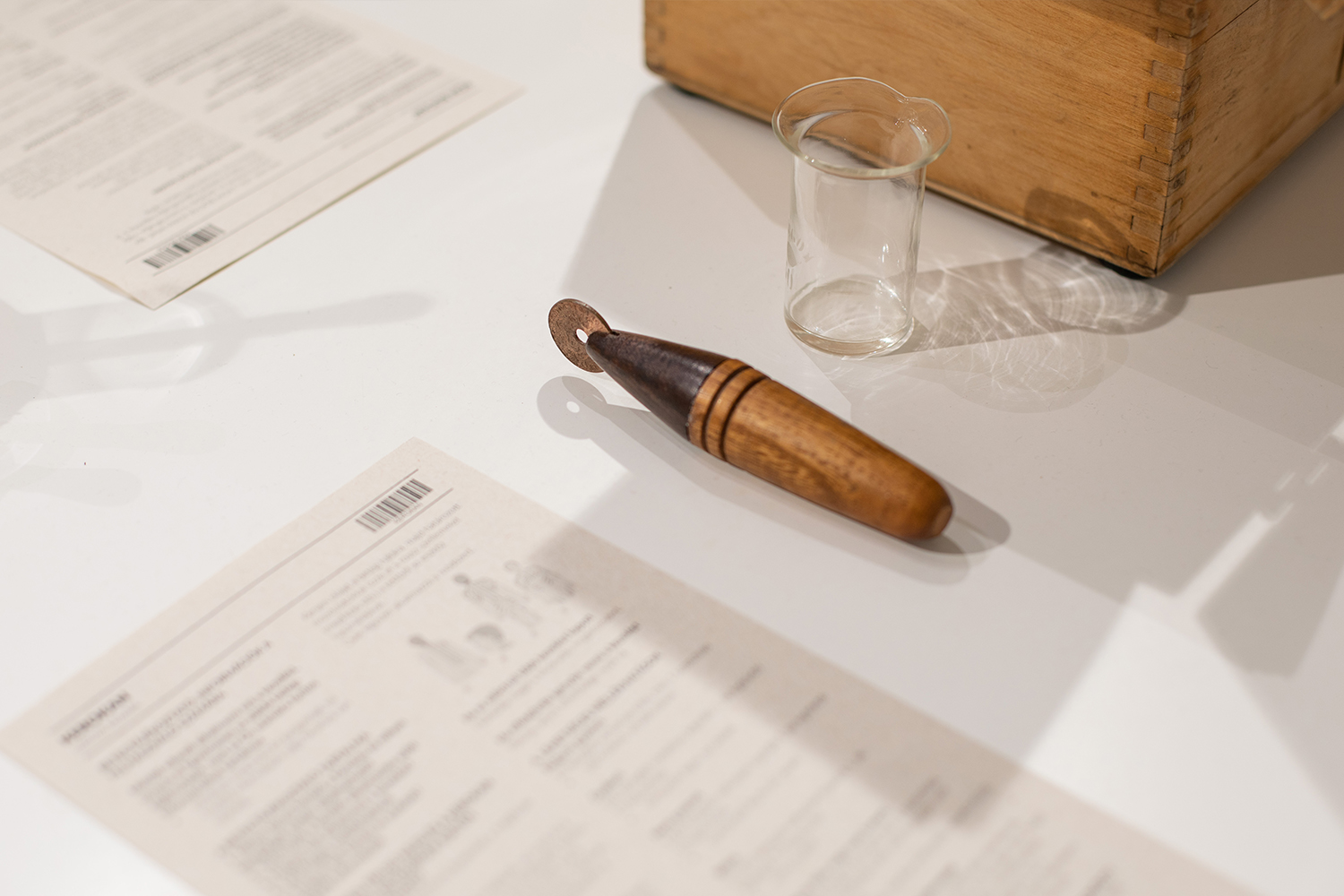
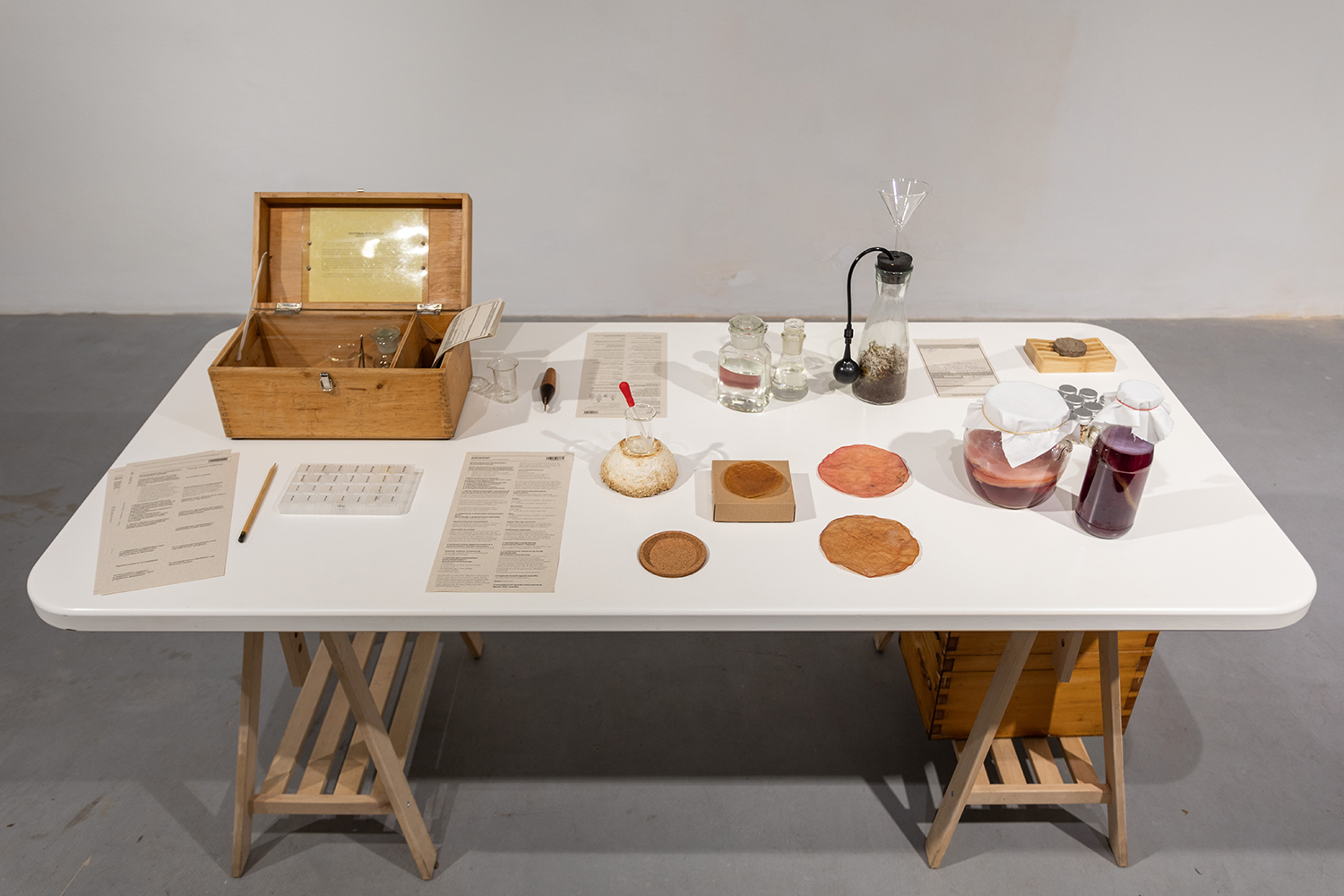
Microbial Futures Lab in Gallery 1111, Budapest, 2023
Photo: Julianna Nyíri / MKE
How can we imagine the medicines of the future in a world where our present relationship with our environment is compromised and typically defined by alienation and rituals of disinfection, fighting bacteria and viruses? What speculative visions of the future, old-new rites, treatments and medicines can we imagine if we look at the concept of health in a holistic way, if we understand it as the mutual well-being of human and more-than-human lifeforms?
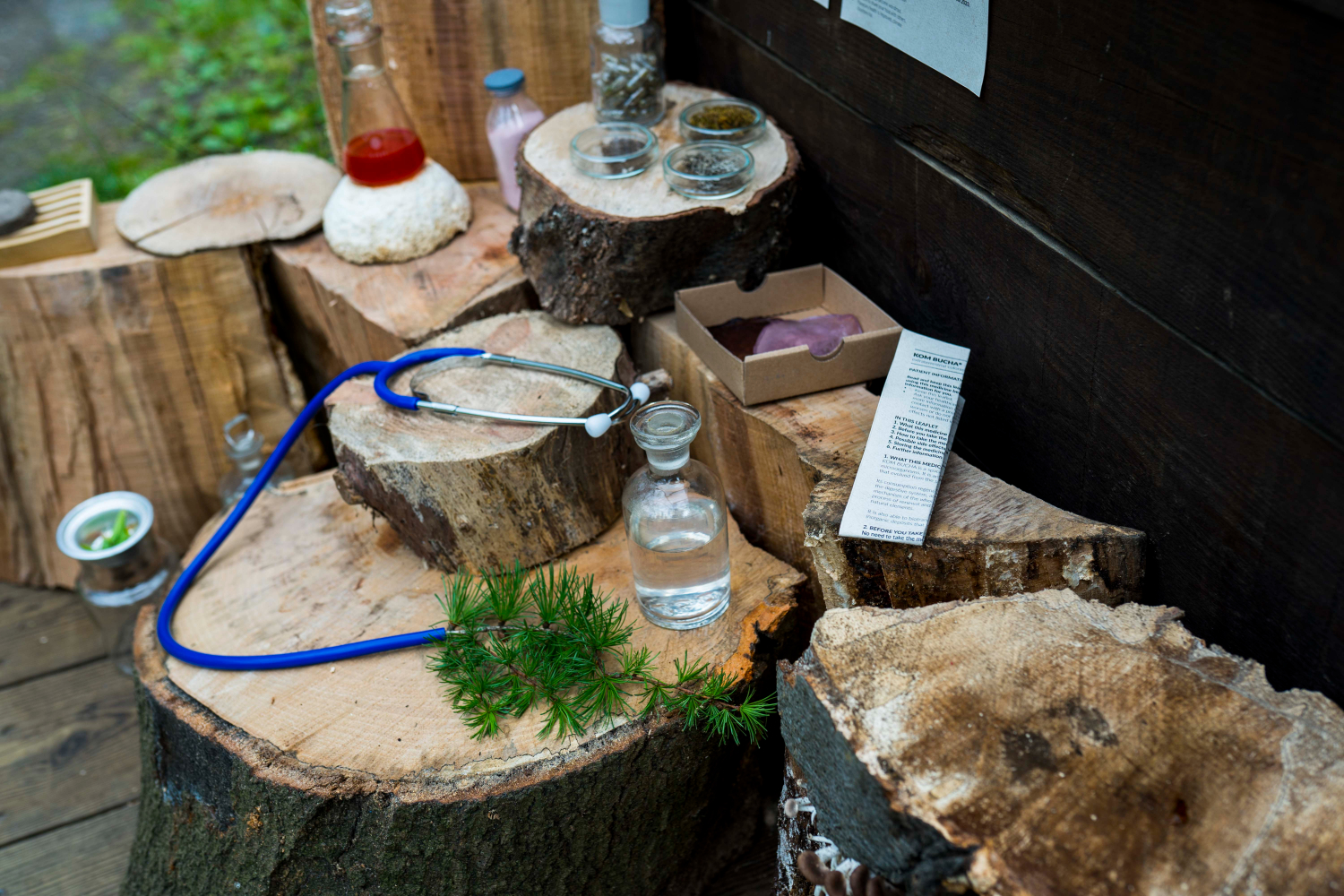
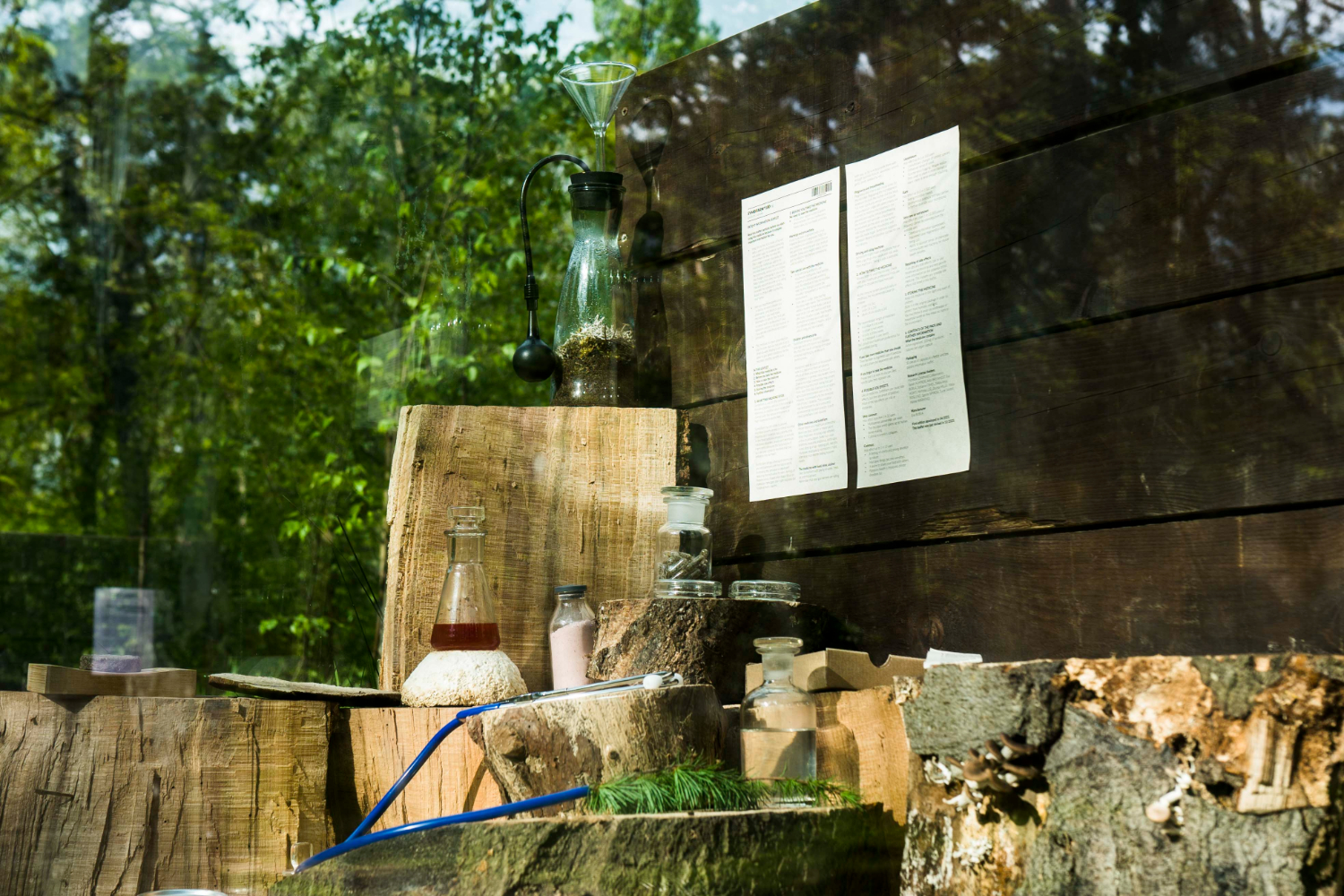
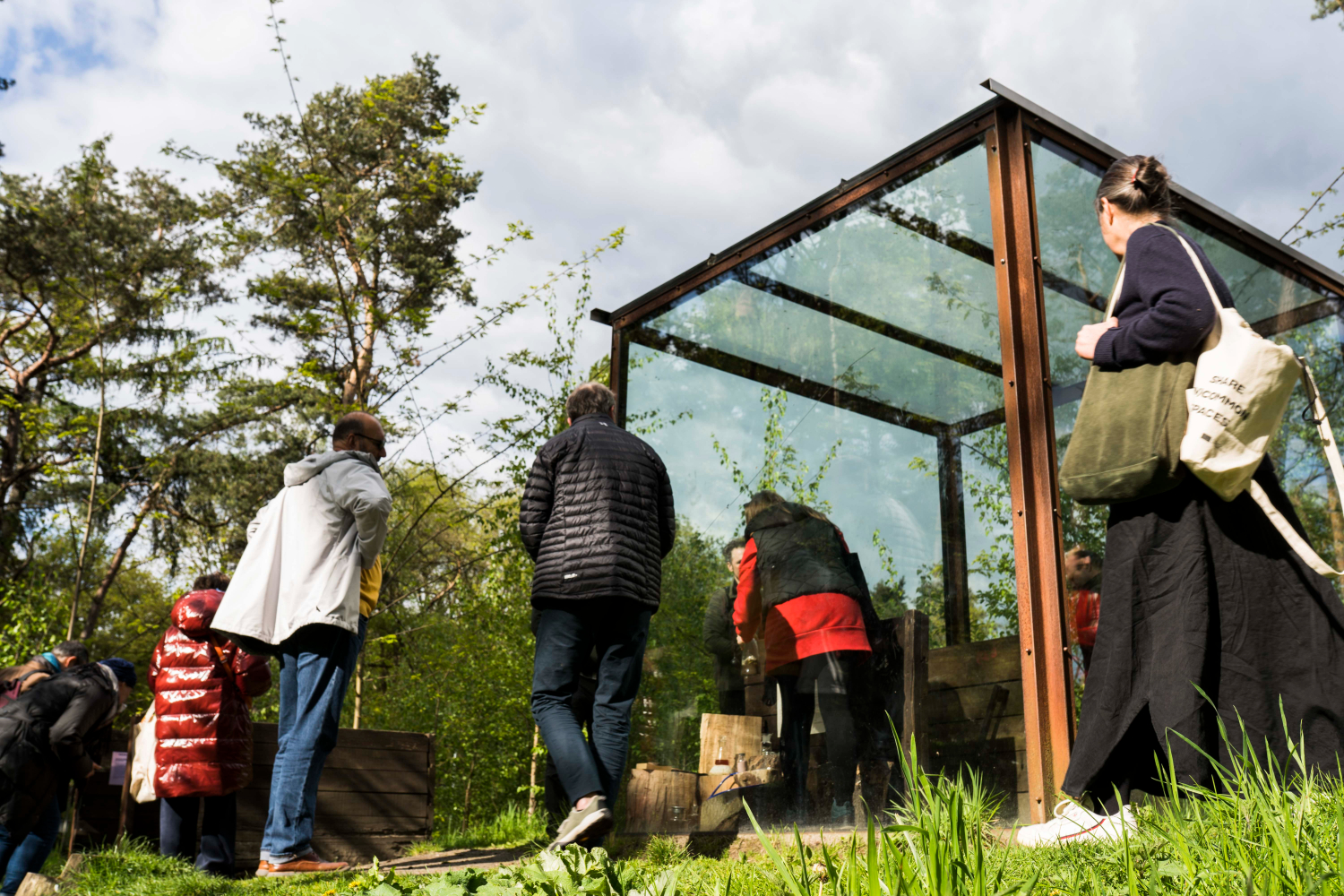
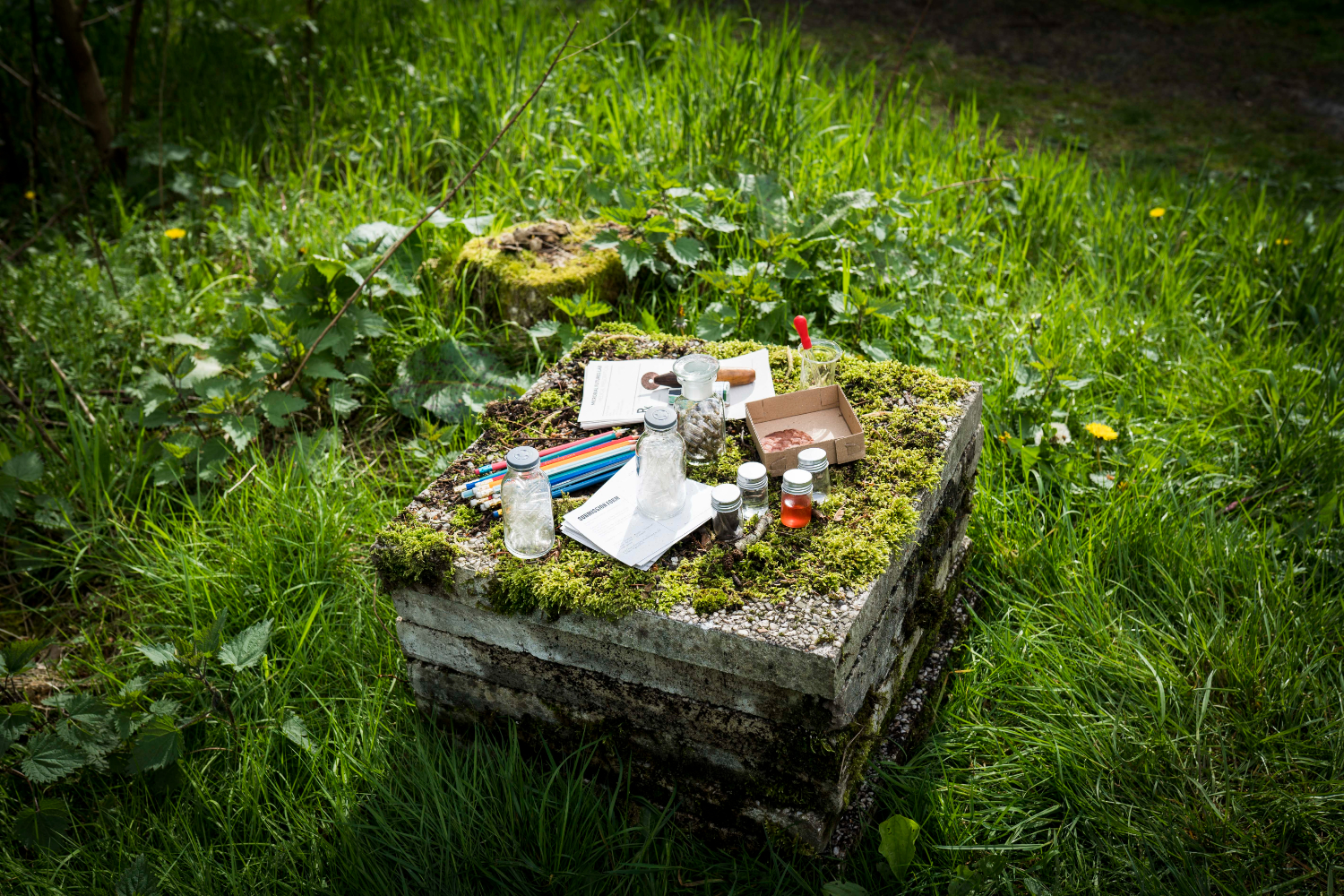
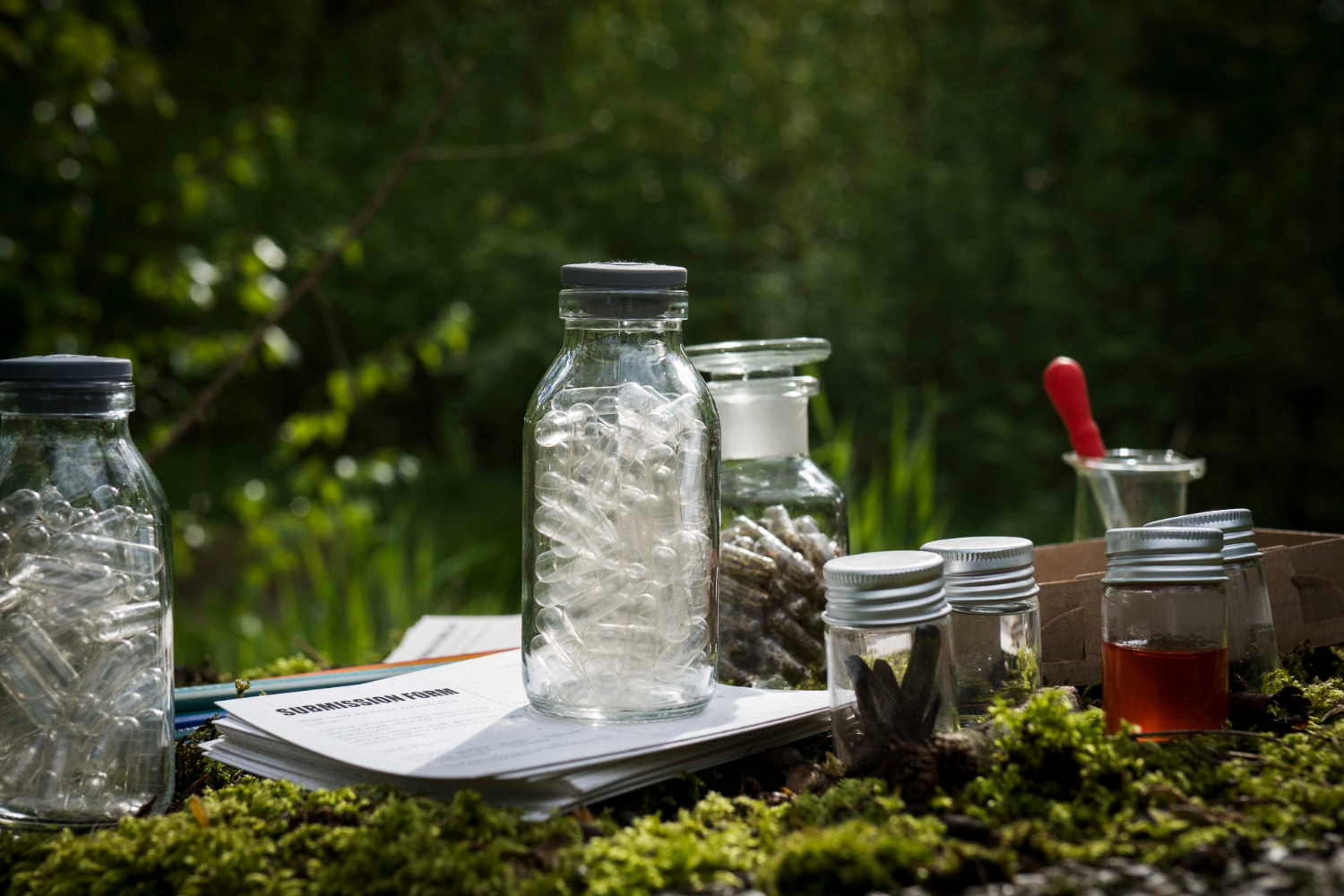
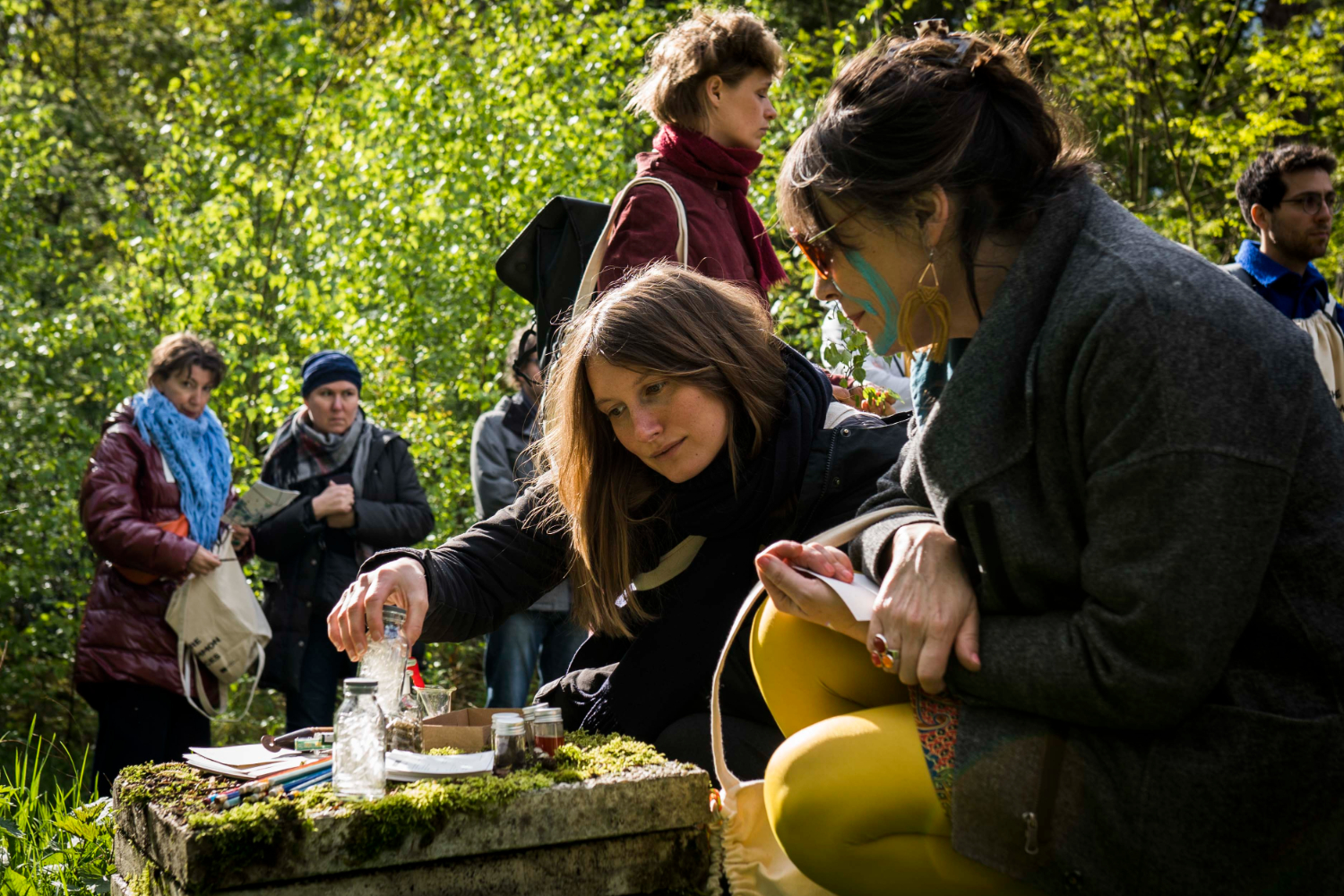
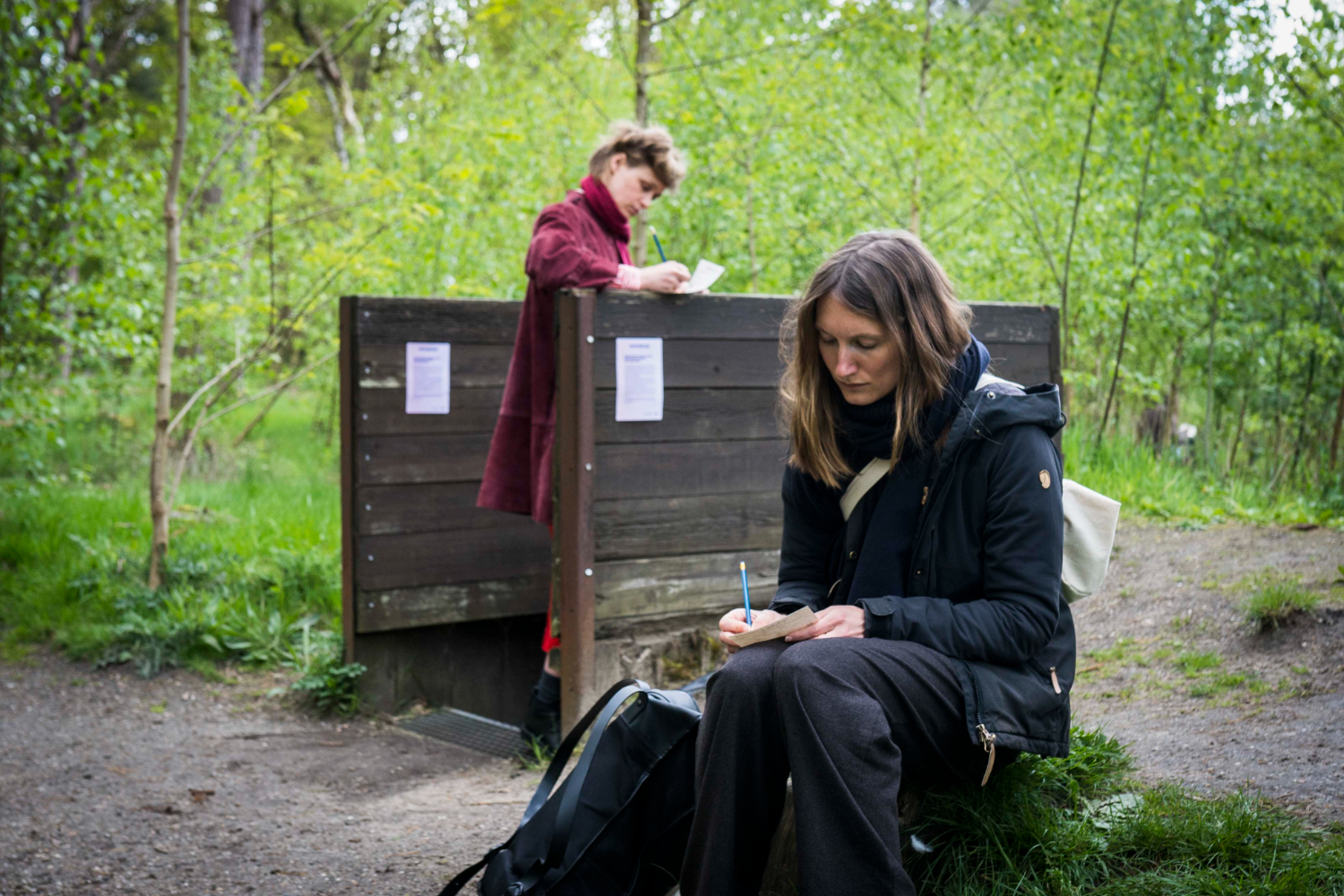
Microbial Futures Lab at IN SITU Open Day 2024, Pelt, Beligium
Photo: Pedro Morato Gabao & Bryan Lassudry
Future medicines workshops
Ongoing, 2023-
During a collective writing process with members of the research team, we have developed a patient information leaflet for a speculative medicine. SymbiFarm, in a possible future, is used to treat microbial dysbiosis and a lack of immunological resilience. Since then, further narratives, medicines and treatments have been gathered and developed, and audiences have been engaged in public workshops with the purpose of shared discussions and to expand the collection with new narratives and prototypes.
Collaboratory members: Zsuzsa Millei (Tampere University, Finland), Sarah Alminde (Roskilde University, Denmark), Asta Breinholt (Roskilde University, Denmark), Eva Bubla (Artist / Activist, Hungary), Mira Grönroos (University of Helsinki), Riikka Hohti (University of Helsinki, Finland), Stefanie Fishel (University of Sunshine Cost, Australia), Sami Keto (University of Oulu, Finland), Nick Lee (University of Warwick, UK), Parinaz Poursafa (Tampere University, Finland), Marja Roslund (Natural Resources Institute, Finland), Erika Saarivara (University of Lapland, Finland), Spyros Spyrou (European University, Cyprus), Tuure Tammi (University of Oulu, Finland), Hanne Warming (Roskilde University, Denmark), Tampere Municipality, Elli Rasimus, Director of Early Childhood Education
Collaboratory members:
Zsuzsa Millei (Tampere University, Finland)
Sarah Alminde (Roskilde University, Denmark)
Asta Breinholt (Roskilde University, Denmark)
Eva Bubla (Artist / Activist, Hungary)
Mira Grönroos (University of Helsinki)
Riikka Hohti (University of Helsinki, Finland)
Stefanie Fishel (University of Sunshine Cost, Australia)
Sami Keto (University of Oulu, Finland)
Nick Lee (University of Warwick, UK)
Parinaz Poursafa (Tampere University, Finland)
Marja Roslund (Natural Resources Institute, Finland)
Erika Saarivara (University of Lapland, Finland)
Spyros Spyrou (European University, Cyprus)
Tuure Tammi (University of Oulu, Finland)
Hanne Warming (Roskilde University, Denmark)
Tampere Municipality
Elli Rasimus, Director of Early Childhood Education
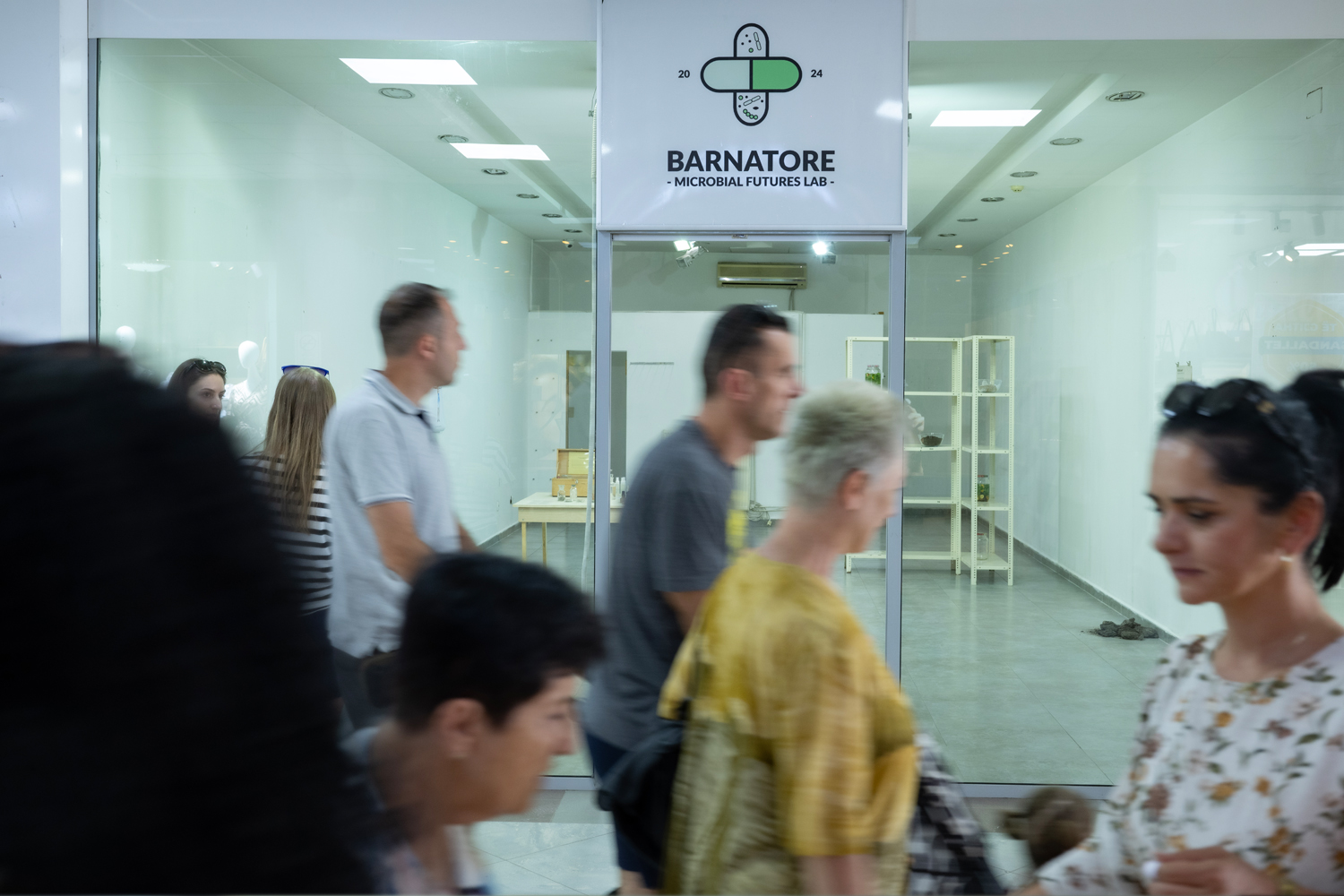
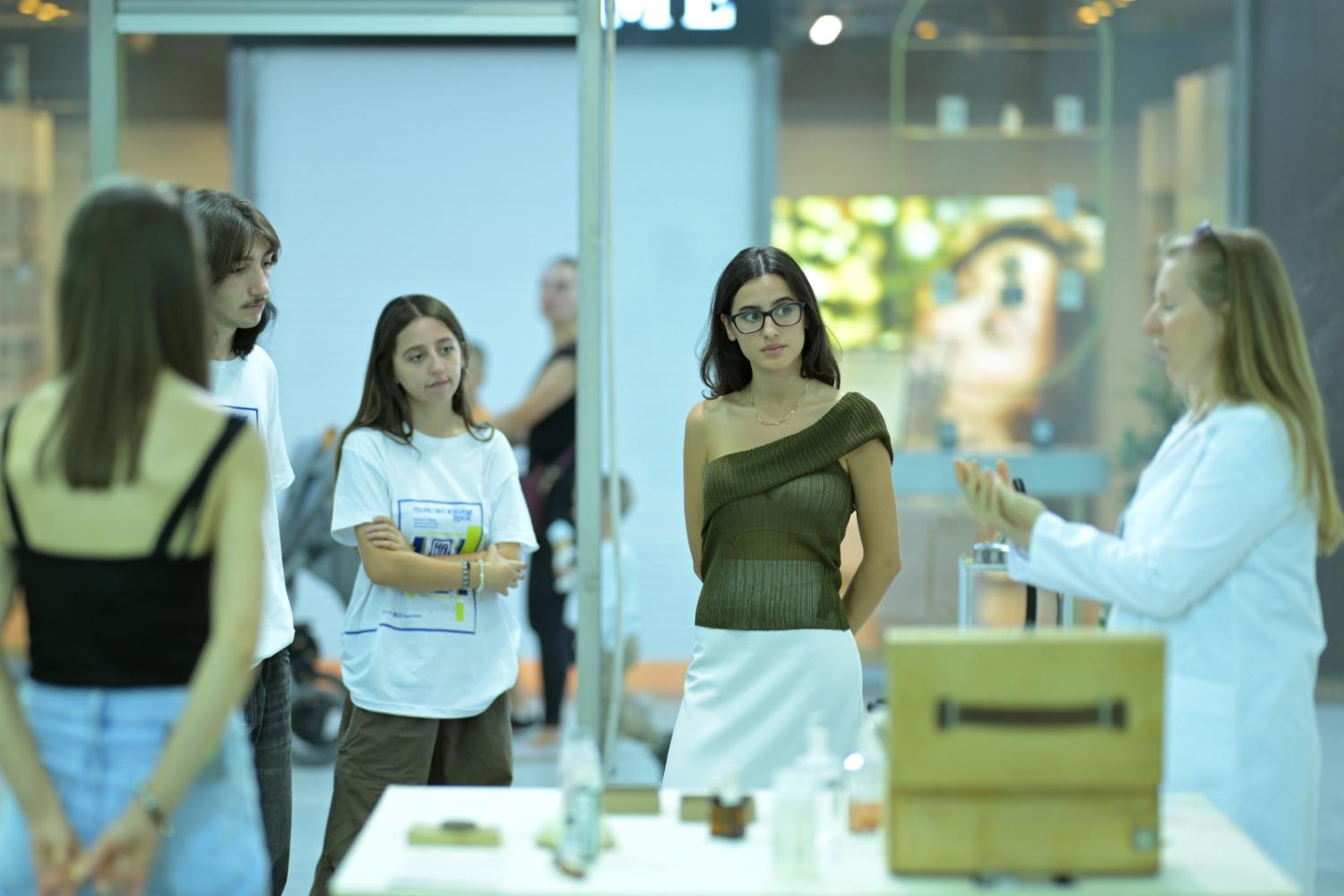
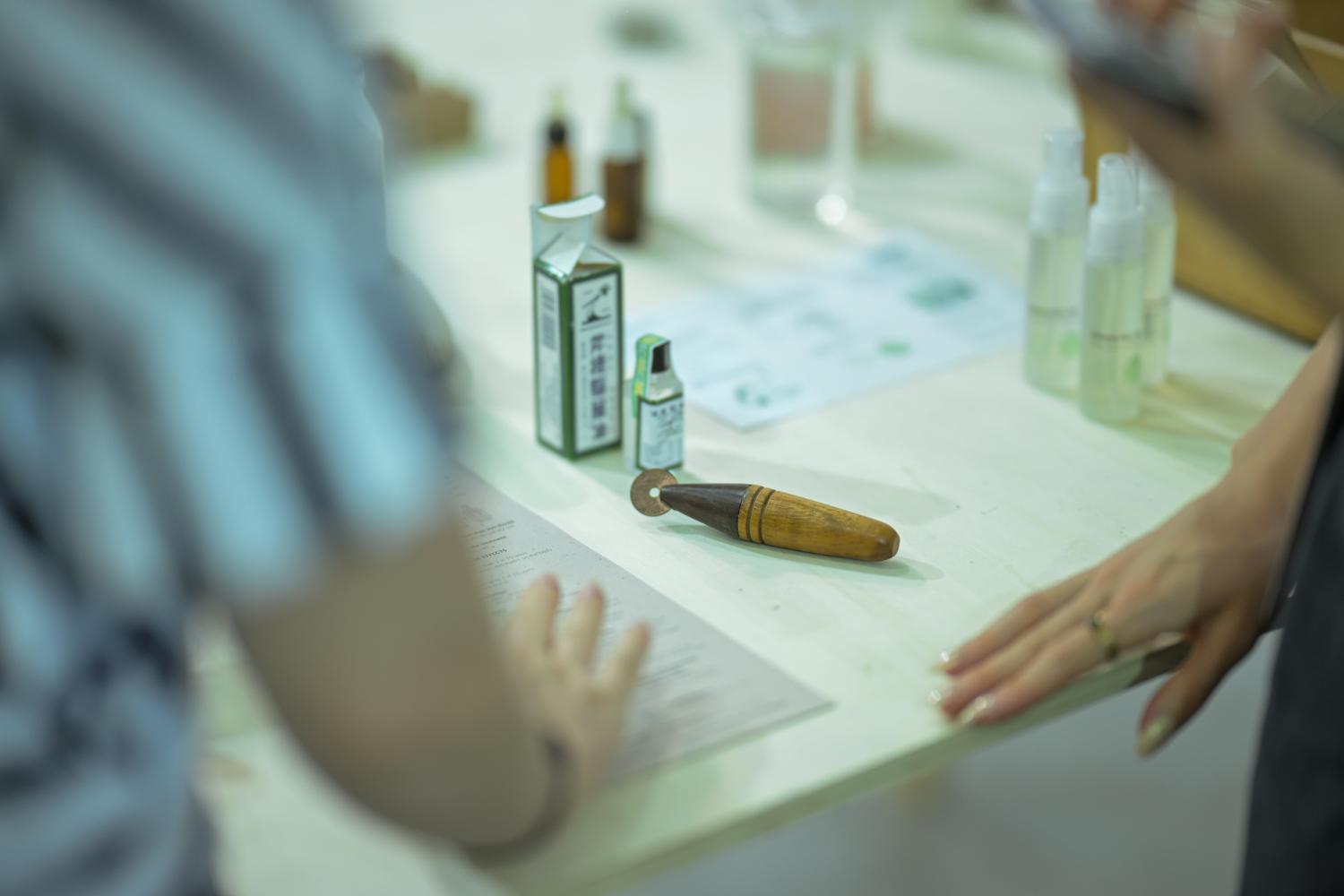
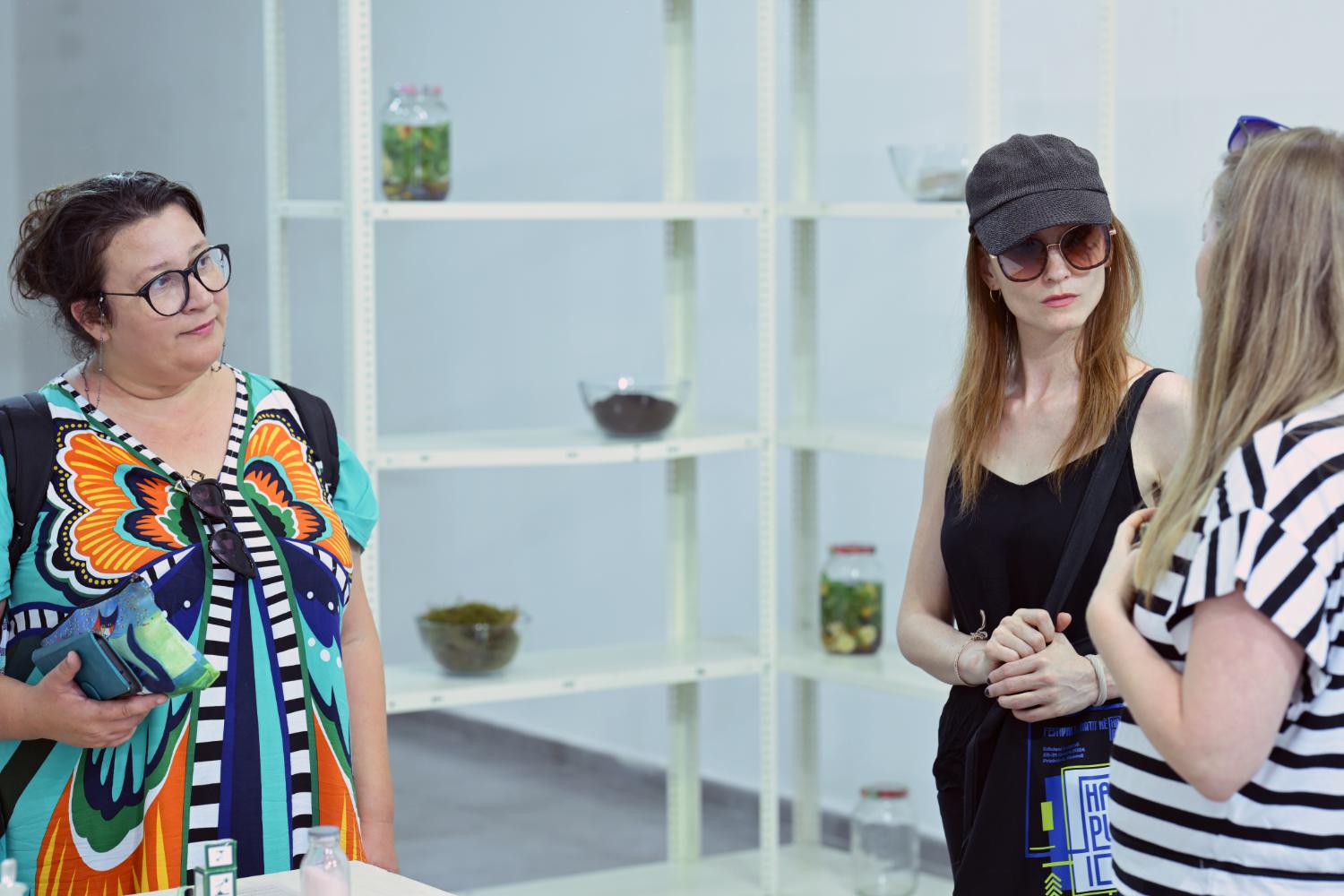
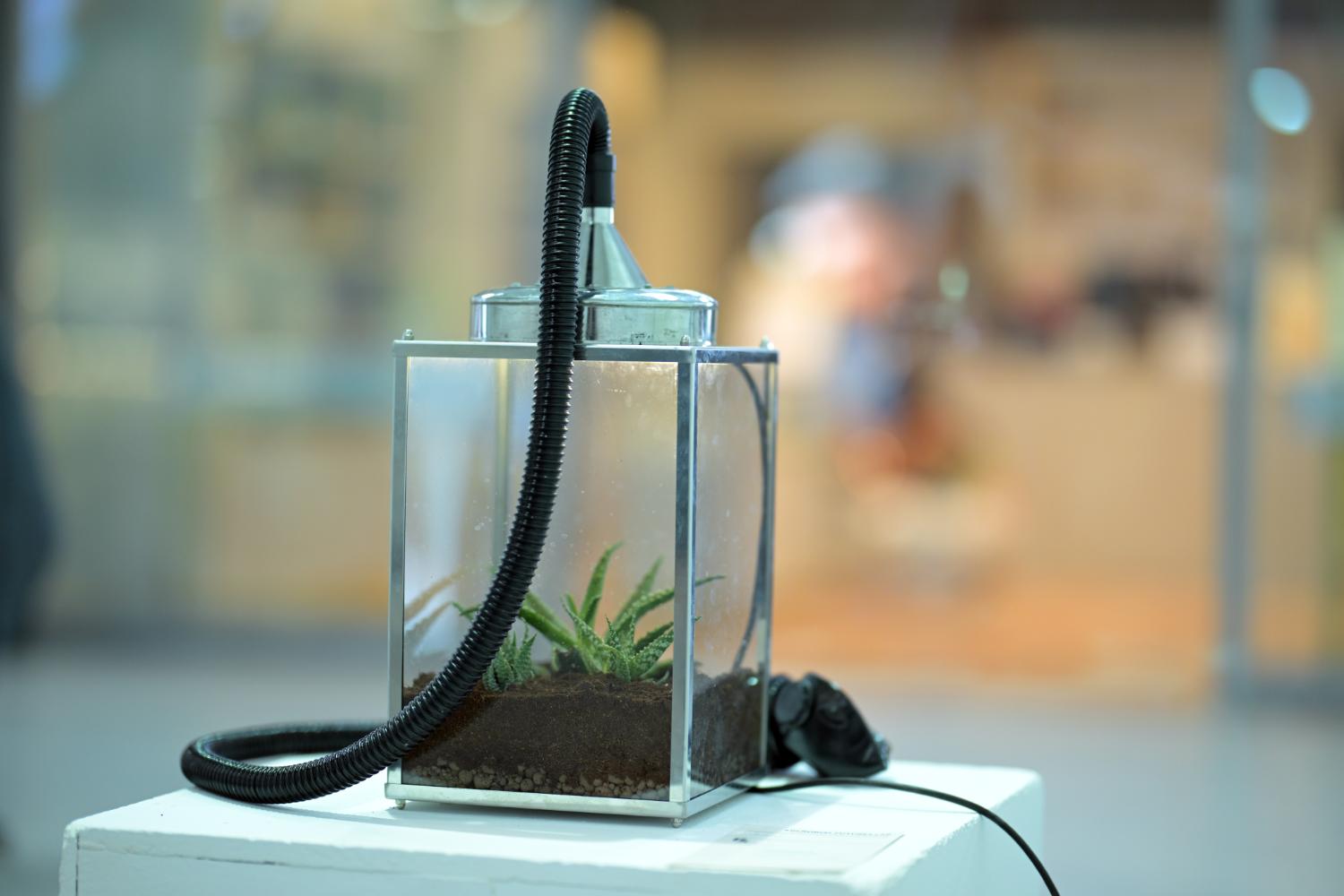
Microbial Futures Lab at HAPUfest 2024, Prishtina, Kosovo
Photo: Arben Llapashtica / Teatri ODA
